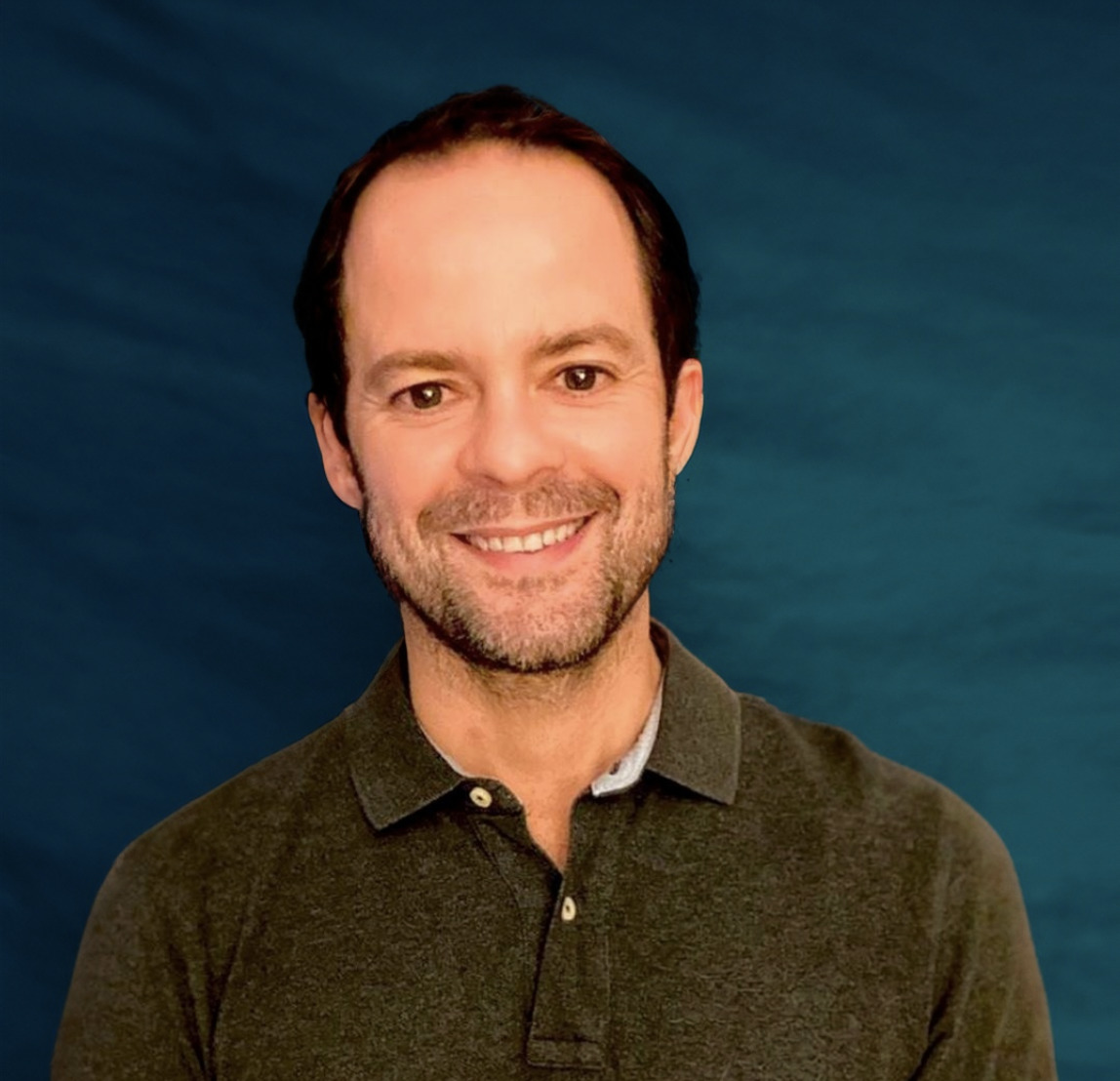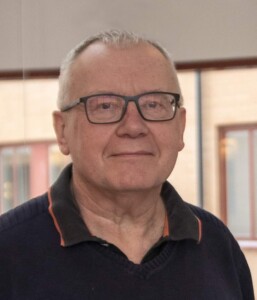Current Faculty
PICH Faculty members are critical training the next generation of paediatric pain researchers by lending their expertise and providing support through mentorship for the PICH trainees.
See our current PICH Faculty members below.
Are you interested in becoming a PICH faculty member? Please complete our PICH Faculty application form.
Dr. Abbie Jordan (@drabbiejordan) is a Senior Lecturer in Department of Psychology at the University of Bath and core member of the Bath Centre for Pain Research. Dr. Jordan’s research adopts a broad focus on the social context of pain, specifically focusing on understanding how best to support children, adolescents and families in managing their lives despite living with chronic pain. Her work focuses on topics including socio-developmental factors in paediatric pain, parenting and narrative approaches to studying children’s pain. Dr. Jordan is particularly interested in adopting novel qualitative approaches to the study of pain in children and young people. You can read more about Dr. Jordan’s research here: https://researchportal.bath.ac.uk/en/persons/abbie-jordan
 Adrienne has a background in physiotherapy with 30 years of clinical, research and education experience. She is currently a Team Leader/Principal Research Fellow in Neurodisability and Rehabilitation at the Murdoch Children’s Research Institute in Melbourne, Australia and Associate Professor within the Department of Paediatrics at the University of Melbourne. Adrienne’s research in children with a disability has focused on 1) embedding reliable and valid outcome measurement into routine clinical care to ensure longitudinal data collection for continual service improvement, and 2) evaluating the effectiveness of allied health and medical interventions. Her passion for improving outcomes for children with cerebral palsy and other developmental disabilities and their families grew from PhD studies completed in 2008 and a two-year post-doctoral fellowship at McMaster University, Canada.
Adrienne has a background in physiotherapy with 30 years of clinical, research and education experience. She is currently a Team Leader/Principal Research Fellow in Neurodisability and Rehabilitation at the Murdoch Children’s Research Institute in Melbourne, Australia and Associate Professor within the Department of Paediatrics at the University of Melbourne. Adrienne’s research in children with a disability has focused on 1) embedding reliable and valid outcome measurement into routine clinical care to ensure longitudinal data collection for continual service improvement, and 2) evaluating the effectiveness of allied health and medical interventions. Her passion for improving outcomes for children with cerebral palsy and other developmental disabilities and their families grew from PhD studies completed in 2008 and a two-year post-doctoral fellowship at McMaster University, Canada.
 Aimee Hildenbrand, PhD is an Associate Professor of Pediatrics at Sidney Kimmel Medical College of Thomas Jefferson University, a Research Scientist at the Nemours Center for Healthcare Delivery Science, and a licensed clinical psychologist in the Division of Behavioral Health at Nemours Children’s Hospital Delaware. Dr. Hildenbrand’s research program aims to improve care delivery and outcomes for youth with health conditions involving acute or chronic pain, with an emphasis on sickle cell disease. Her work focuses on digital health interventions, shared decision-making, adolescent and young adult disease self-management, and interdisciplinary approaches to pediatric pain care. She also provides clinical services for youth with sickle cell disease and chronic pain. Dr. Hildenbrand can be contacted at Aimee.Hildenbrand@nemours.org.
Aimee Hildenbrand, PhD is an Associate Professor of Pediatrics at Sidney Kimmel Medical College of Thomas Jefferson University, a Research Scientist at the Nemours Center for Healthcare Delivery Science, and a licensed clinical psychologist in the Division of Behavioral Health at Nemours Children’s Hospital Delaware. Dr. Hildenbrand’s research program aims to improve care delivery and outcomes for youth with health conditions involving acute or chronic pain, with an emphasis on sickle cell disease. Her work focuses on digital health interventions, shared decision-making, adolescent and young adult disease self-management, and interdisciplinary approaches to pediatric pain care. She also provides clinical services for youth with sickle cell disease and chronic pain. Dr. Hildenbrand can be contacted at Aimee.Hildenbrand@nemours.org.
 Professor Briggs has combined a career of health policy and systems research; health policy/strategy; health consulting; and clinical practice. He currently works across these domains at a senior level. This unique portfolio mix provides him with skills and real-world insights into health systems strengthening from the clinical coalface through to system-level reform. The focus of Professor Briggs’ research and policy work has centred on health system strengthening, oriented around the delivery of high-value care for people with non-communicable diseases, in particular musculoskeletal health across the lifecourse. The work aims to bridge the gap between health policy and research by working with Government and non-government partners to evaluate the development and implementation of health policy and health services with foci in digital strategies and building capacity in the health workforce and among consumers to deliver and seek high-value care.
Professor Briggs has combined a career of health policy and systems research; health policy/strategy; health consulting; and clinical practice. He currently works across these domains at a senior level. This unique portfolio mix provides him with skills and real-world insights into health systems strengthening from the clinical coalface through to system-level reform. The focus of Professor Briggs’ research and policy work has centred on health system strengthening, oriented around the delivery of high-value care for people with non-communicable diseases, in particular musculoskeletal health across the lifecourse. The work aims to bridge the gap between health policy and research by working with Government and non-government partners to evaluate the development and implementation of health policy and health services with foci in digital strategies and building capacity in the health workforce and among consumers to deliver and seek high-value care.
 Anna C. Wilson, PhD is a pediatric psychologist and associate professor of pediatrics at Oregon Health & Science University (OHSU). Her work focuses on parent-child factors in adolescents with chronic pain, and intergenerational transmission of risk for chronic pain. Her current research projects include a large longitudinal study of the impact of maternal chronic pain on children during early adolescent development, as well as a study of pain and opioid use outcomes for adolescents and young adults prescribed opioids in pediatric medical settings. Dr. Wilson also provides clinical services for youth with chronic pain through OHSU’s Pediatric Pain Management Clinic, serves as associate editor for pediatric submissions for the Clinical Journal of Pain, and serves as associate director for faculty development in the Department of Pediatrics at OHSU. https://www.ohsu.edu/advancing-research-pediatric-pain-lab
Anna C. Wilson, PhD is a pediatric psychologist and associate professor of pediatrics at Oregon Health & Science University (OHSU). Her work focuses on parent-child factors in adolescents with chronic pain, and intergenerational transmission of risk for chronic pain. Her current research projects include a large longitudinal study of the impact of maternal chronic pain on children during early adolescent development, as well as a study of pain and opioid use outcomes for adolescents and young adults prescribed opioids in pediatric medical settings. Dr. Wilson also provides clinical services for youth with chronic pain through OHSU’s Pediatric Pain Management Clinic, serves as associate editor for pediatric submissions for the Clinical Journal of Pain, and serves as associate director for faculty development in the Department of Pediatrics at OHSU. https://www.ohsu.edu/advancing-research-pediatric-pain-lab
 Argerie Tsimicalis, RN, PhD is an Associate Professor in the Ingram School of Nursing with an Associate Member Status in the Department of Oncology, Faculty of Medicine and Health Sciences, McGill University. She also holds two scientific appointments in the hospital sector in Clinical Research at Shriners Hospitals for Children-Canada and in the Injury Repair Recovery Program at the Montreal University Health Centre Research Institute (MUHC-RI). In 2019, Dr. Tsimicalis was awarded a competitive career award called ‘Chercheur-Boursier Junior 1’ from the Fonds de recherche Québec-Santé (Quebec Medical Research Council). Dr. Tsimicalis serves as one of the National Collaborators for Pain in Child Health, which offers national and international training opportunities. Her program of research is devoted to understanding the costs (and benefits) of childhood illness and disability. Understanding these costs and benefits have set the stage for the creation and evaluation of cost-effective, child- and family-‘friendly’ innovative health services (e.g. e-health, m-health, virtual reality, and gaming), resources (e.g. songs and books) and policies (e.g. policy briefs, evidence-based practice guidelines). Innovations arise through transdisciplinary thinking, global partnerships, and a rich trainee environment. Dr. Tsimicalis’ students come from an astonishingly wide range of backgrounds. She also supervises students with childhood onset illnesses and the siblings of a child with a childhood onset illness. She strives to ignite the research spark in her trainees, which finds its expression in the many ongoing collaborations that she maintains with her former students. For more details, please visit Argerie’s website.
Argerie Tsimicalis, RN, PhD is an Associate Professor in the Ingram School of Nursing with an Associate Member Status in the Department of Oncology, Faculty of Medicine and Health Sciences, McGill University. She also holds two scientific appointments in the hospital sector in Clinical Research at Shriners Hospitals for Children-Canada and in the Injury Repair Recovery Program at the Montreal University Health Centre Research Institute (MUHC-RI). In 2019, Dr. Tsimicalis was awarded a competitive career award called ‘Chercheur-Boursier Junior 1’ from the Fonds de recherche Québec-Santé (Quebec Medical Research Council). Dr. Tsimicalis serves as one of the National Collaborators for Pain in Child Health, which offers national and international training opportunities. Her program of research is devoted to understanding the costs (and benefits) of childhood illness and disability. Understanding these costs and benefits have set the stage for the creation and evaluation of cost-effective, child- and family-‘friendly’ innovative health services (e.g. e-health, m-health, virtual reality, and gaming), resources (e.g. songs and books) and policies (e.g. policy briefs, evidence-based practice guidelines). Innovations arise through transdisciplinary thinking, global partnerships, and a rich trainee environment. Dr. Tsimicalis’ students come from an astonishingly wide range of backgrounds. She also supervises students with childhood onset illnesses and the siblings of a child with a childhood onset illness. She strives to ignite the research spark in her trainees, which finds its expression in the many ongoing collaborations that she maintains with her former students. For more details, please visit Argerie’s website.
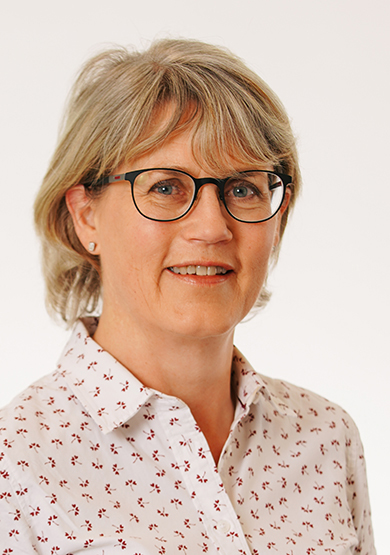 Drawing on my previous twenty years hands-on experience as a clinical physiotherapist in the private sector and clinical educator and lecturer, I have spent the last fifteen years focussed on research. I currently work: as a Research Fellow at the University of South Australia’s IIMPACT in Health leading codesign work with adolescents with chronic pain; as adjunct research fellow leading Pain Investigation within the Brain Stimulation, Imaging and Cognition Group at the South Australian Health and Medical Research Institute; and as Senior Pain Physiotherapist at the Adelaide Women’s and Children’s Hospital Paediatric Chronic Pain Service. I developed and taught a range of pain science courses for professionals and public, authored and peer-reviewed many articles on latest developments for specialist journals, and I continue to drive research investigating the biopsychosocial mechanisms of chronic pain. I mentor and supervise advanced degree students and clinicians who will take the field into the future.
Drawing on my previous twenty years hands-on experience as a clinical physiotherapist in the private sector and clinical educator and lecturer, I have spent the last fifteen years focussed on research. I currently work: as a Research Fellow at the University of South Australia’s IIMPACT in Health leading codesign work with adolescents with chronic pain; as adjunct research fellow leading Pain Investigation within the Brain Stimulation, Imaging and Cognition Group at the South Australian Health and Medical Research Institute; and as Senior Pain Physiotherapist at the Adelaide Women’s and Children’s Hospital Paediatric Chronic Pain Service. I developed and taught a range of pain science courses for professionals and public, authored and peer-reviewed many articles on latest developments for specialist journals, and I continue to drive research investigating the biopsychosocial mechanisms of chronic pain. I mentor and supervise advanced degree students and clinicians who will take the field into the future.
 Dr. Christine Chambers is an international leader in the study of children’s pain and an innovator in patient engagement, partnerships and knowledge mobilization. As a clinical psychologist and national voice for children’s health, Christine creates purposeful connections with diverse groups to move research from ideas to impact, improving the lives of children, youth and families. Named one of Canada’s Top 100 Most Powerful Women by the Women’s Executive Network, Christine has published over 200 articles in peer-reviewed scientific journals and is recognized in the top 2% of the most cited scientists in the world.
Dr. Christine Chambers is an international leader in the study of children’s pain and an innovator in patient engagement, partnerships and knowledge mobilization. As a clinical psychologist and national voice for children’s health, Christine creates purposeful connections with diverse groups to move research from ideas to impact, improving the lives of children, youth and families. Named one of Canada’s Top 100 Most Powerful Women by the Women’s Executive Network, Christine has published over 200 articles in peer-reviewed scientific journals and is recognized in the top 2% of the most cited scientists in the world.
Christine wears many hats in Canada’s health research community. She is a Professor and Tier 1 Canada Research Chair in Children’s Pain at Dalhousie University and faculty member in the Centre for Pediatric Pain Research at IWK Health Centre. Her acclaimed research program, The Chambers Lab, has helped establish Canada as a leader in children’s pain research, launching award-winning projects including #ItDoesntHaveToHurt and mentoring over 100 trainees. Christine also serves as the Scientific Director of Solutions for Kids in Pain (SKIP), and the Scientific Director of the Institute of Human Development, Child and Youth Health (IHDCYH) at the Canadian Institutes of Health Research (CIHR).
 As part of the Center for Understanding Pediatric Pain (CUPP) at Cincinnati Children’s, our interdisciplinary team of scientists are committed to understanding the mechanisms underlying pain in children and adolescents. Specifically, my program of research focuses on understanding the biobehavioral mechanisms contributing to the development and persistence of localized and widespread pain in youth and young adults. To achieve this goal, my group uses multidisciplinary techniques including pain psychophysical (quantitative sensory testing), psychoneuroimmunological, and sleep methodologies to study pain and the mechanisms contributing to pain development and persistence with the goal of translating basic science research into ways to improve children’s pain management and dramatically improve how children experience pain.
As part of the Center for Understanding Pediatric Pain (CUPP) at Cincinnati Children’s, our interdisciplinary team of scientists are committed to understanding the mechanisms underlying pain in children and adolescents. Specifically, my program of research focuses on understanding the biobehavioral mechanisms contributing to the development and persistence of localized and widespread pain in youth and young adults. To achieve this goal, my group uses multidisciplinary techniques including pain psychophysical (quantitative sensory testing), psychoneuroimmunological, and sleep methodologies to study pain and the mechanisms contributing to pain development and persistence with the goal of translating basic science research into ways to improve children’s pain management and dramatically improve how children experience pain.
 David Moore is a Reader in Pain Psychology at Liverpool John Moores University and a co-founder of the Somatosensory and Affective Neuroscience Research group. David is an Associate Fellow of the British Psychological Society and his research interests include somatosensation in autism (pain and gentle touch) as well as the cognitive impact of pain. His recent work has been seeking to examine the pain experiences and expressions of autistic people and examining how to better provide pain education and management for autistic patients. He is interested in the experiences of pain in neurodivergent people and potential links with hypermobility and is a pain adviser to the SEDS connective charity.
David Moore is a Reader in Pain Psychology at Liverpool John Moores University and a co-founder of the Somatosensory and Affective Neuroscience Research group. David is an Associate Fellow of the British Psychological Society and his research interests include somatosensation in autism (pain and gentle touch) as well as the cognitive impact of pain. His recent work has been seeking to examine the pain experiences and expressions of autistic people and examining how to better provide pain education and management for autistic patients. He is interested in the experiences of pain in neurodivergent people and potential links with hypermobility and is a pain adviser to the SEDS connective charity.
 Deirdre Logan, Ph.D. ABPP, is Director of Psychology Services in the Division of Pain Medicine, Department of Anesthesiology, Critical Care & Pain Medicine at Boston Children’s Hospital (BCH) and Associate Professor of psychology, Department of Psychiatry, Harvard Medical School. She directs the postdoctoral fellowship program in pediatric pain psychology and is a member of the ACGME pain fellow training committee at BCH. Dr. Logan received her PhD in Clinical Psychology at the University of Michigan and completed postdoctoral training at The Children’s Hospital of Philadelphia, where she subsequently served on faculty in the Department of Anesthesia. Dr. Logan’s research focuses on the roles of school and family systems in the pediatric chronic pain experience. An additional area of focus is on implementation and evaluation of care innovations in intensive interdisciplinary pediatric pain rehabilitation. Dr. Logan is the current Editor of the Pediatric Pain Letter and is active in the Society of Pediatric Psychology and the IASP.
Deirdre Logan, Ph.D. ABPP, is Director of Psychology Services in the Division of Pain Medicine, Department of Anesthesiology, Critical Care & Pain Medicine at Boston Children’s Hospital (BCH) and Associate Professor of psychology, Department of Psychiatry, Harvard Medical School. She directs the postdoctoral fellowship program in pediatric pain psychology and is a member of the ACGME pain fellow training committee at BCH. Dr. Logan received her PhD in Clinical Psychology at the University of Michigan and completed postdoctoral training at The Children’s Hospital of Philadelphia, where she subsequently served on faculty in the Department of Anesthesia. Dr. Logan’s research focuses on the roles of school and family systems in the pediatric chronic pain experience. An additional area of focus is on implementation and evaluation of care innovations in intensive interdisciplinary pediatric pain rehabilitation. Dr. Logan is the current Editor of the Pediatric Pain Letter and is active in the Society of Pediatric Psychology and the IASP.
 Dr. Denise Harrison is a Professor of Nursing at the University of Melbourne, Australia. From 2011 to 2019, I was the Chair in Nursing Care of Children, Youth and Families at the University of Ottawa and Children’s Hospital of Eastern Ontario (CHEO), Canada. Dr. Harrison leads the Be Sweet to Babies program of research which focuses on improving pain management for neonates, infants and young children in partnership with parents, clinicians, interdisciplinary researchers and trainees. This work includes primary research (determining effective pain management strategies in sick and healthy infants and young children), knowledge synthesis and knowledge translation. The team’s parent targeted YouTube videos show ease and effectiveness of performing heel lancing or venipuncture while babies are being breastfed, held skin-skin and given sucrose (https://www.youtube.com/watch?v=L43y0H6XEH4&feature=youtu.be). The health-care provider targeted video demonstrates best ergonomics for performing heel lancing while the babies are being breastfed or held skin-skin. (https://www.youtube.com/watch?v=lpZNwP7bnkg&feature=youtu.be).
Dr. Denise Harrison is a Professor of Nursing at the University of Melbourne, Australia. From 2011 to 2019, I was the Chair in Nursing Care of Children, Youth and Families at the University of Ottawa and Children’s Hospital of Eastern Ontario (CHEO), Canada. Dr. Harrison leads the Be Sweet to Babies program of research which focuses on improving pain management for neonates, infants and young children in partnership with parents, clinicians, interdisciplinary researchers and trainees. This work includes primary research (determining effective pain management strategies in sick and healthy infants and young children), knowledge synthesis and knowledge translation. The team’s parent targeted YouTube videos show ease and effectiveness of performing heel lancing or venipuncture while babies are being breastfed, held skin-skin and given sucrose (https://www.youtube.com/watch?v=L43y0H6XEH4&feature=youtu.be). The health-care provider targeted video demonstrates best ergonomics for performing heel lancing while the babies are being breastfed or held skin-skin. (https://www.youtube.com/watch?v=lpZNwP7bnkg&feature=youtu.be).
 Emma Fisher is a Senior Research Fellow at the University of Bath. Her primary research interests focus on the risk factors of developing chronic pain after an acute musculoskeletal injury in children and adolescents, funded by Versus Arthritis. In addition, Dr Fisher is interested in blast trauma in children, evidence-based medicine, quality, and trustworthiness of pain science. Her other research interests include mechanisms in pain transitions, menstrual pain, and virtual reality.
Emma Fisher is a Senior Research Fellow at the University of Bath. Her primary research interests focus on the risk factors of developing chronic pain after an acute musculoskeletal injury in children and adolescents, funded by Versus Arthritis. In addition, Dr Fisher is interested in blast trauma in children, evidence-based medicine, quality, and trustworthiness of pain science. Her other research interests include mechanisms in pain transitions, menstrual pain, and virtual reality.
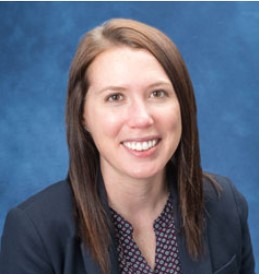 Emily Wakefield, PsyD, is an Assistant Professor in Pediatrics at the University of Connecticut School of Medicine and a Pediatric Psychologist in the Divisions of Pain and Palliative Medicine and Pediatric Psychology at Connecticut Children’s. Dr. Wakefield provides behavioral health interventions for children and adolescents with chronic pain and their families. Her research interests broadly are identifying psychosocial factors impacting the quality of life and healthcare for youth with pain conditions. More specifically, she has published on the physical and emotional impact of racial bias and health-related stigma in youth with sickle cell disease. Dr. Wakefield also has received a K23 award from the National Institutes of Arthritis and Musculoskeletal and Skin Disease in her pursuit to understand the impact of pain-related stigma on adolescents with chronic widespread musculoskeletal pain. She is currently work toward the validation of a pain-related stigma scale for youth with chronic pain.
Emily Wakefield, PsyD, is an Assistant Professor in Pediatrics at the University of Connecticut School of Medicine and a Pediatric Psychologist in the Divisions of Pain and Palliative Medicine and Pediatric Psychology at Connecticut Children’s. Dr. Wakefield provides behavioral health interventions for children and adolescents with chronic pain and their families. Her research interests broadly are identifying psychosocial factors impacting the quality of life and healthcare for youth with pain conditions. More specifically, she has published on the physical and emotional impact of racial bias and health-related stigma in youth with sickle cell disease. Dr. Wakefield also has received a K23 award from the National Institutes of Arthritis and Musculoskeletal and Skin Disease in her pursuit to understand the impact of pain-related stigma on adolescents with chronic widespread musculoskeletal pain. She is currently work toward the validation of a pain-related stigma scale for youth with chronic pain.
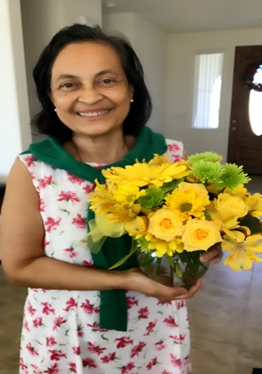 Eufemia Jacob, PhD, RN is an Associate Professor at UCLA. She graduated from UCSF (2001) and joined PICH as a postdoctoral fellow at Baylor College of Medicine (2002-2007). Her research focused on improving symptom management and minimizing severity and frequency of pain and symptoms for children and adolescents with chronic illness, such as sickle cell disease (SCD), cancer, and other chronic illness with medical complexity. She pilot tested the wireless pain intervention program for children and adolescents with SCD that incorporated an electronic pain and symptom-monitoring diary using a smartphone. The program led to early screening and detection of SCD related complications, prompt management of pain and symptoms, prevention or reduction of hospitalizations due to SCD related complications, more efficient referral for treatments, timely patient education, and psychosocial support in children and adolescents with SCD. PICH allowed her to develop ongoing partnerships with research teams in Brazil, Portugal, and Canada.
Eufemia Jacob, PhD, RN is an Associate Professor at UCLA. She graduated from UCSF (2001) and joined PICH as a postdoctoral fellow at Baylor College of Medicine (2002-2007). Her research focused on improving symptom management and minimizing severity and frequency of pain and symptoms for children and adolescents with chronic illness, such as sickle cell disease (SCD), cancer, and other chronic illness with medical complexity. She pilot tested the wireless pain intervention program for children and adolescents with SCD that incorporated an electronic pain and symptom-monitoring diary using a smartphone. The program led to early screening and detection of SCD related complications, prompt management of pain and symptoms, prevention or reduction of hospitalizations due to SCD related complications, more efficient referral for treatments, timely patient education, and psychosocial support in children and adolescents with SCD. PICH allowed her to develop ongoing partnerships with research teams in Brazil, Portugal, and Canada.
I am a professor at the Instituto Federal do Rio de Janeiro (Brazil), an adjunct professor at the School of Physical and Occupational Therapy at McGill University (Canada), and a visiting professor at the Pain in Motion Research Group, Vrije Universiteit Brussel (Belgium). I earned my PhD in Medical Sciences from the Universidade Federal do Rio de Janeiro. I also have a bachelor’s degree in Data Science and Artificial Intelligence. My research interests lie at the intersection of chronic pain, emotion, behavior, and pain education for both professionals and patients. I have investigated pain education curricula
for healthcare professionals and developed educational resources to empower patients with knowledge about pain management. In recent years, I expanded my work integrating artificial intelligence models into physiotherapy, with a particular focus on musculoskeletal pain. I serve the International Association for the Study of Pain as a councilor of Latin America and Caribbean. I coordinate the research group Pesquisa em Dor (Brazil), and an active member of the Pain in Motion research group (Belgium) and Pain Education Team to Advance Learning – PETAL (Australia).
 Dr. Hannah Durand (she/her) is a Lecturer in Health Psychology in the Division of Psychology at the University of Stirling, Scotland. Before moving to Stirling, Dr Durand completed her PhD in Health Psychology and two postdoctoral research fellowships at the National University of Ireland, Galway. Dr Durand’s research interests centre around pain self- and shared-management in youth. She is particularly interested in gynaecological pain self-management and help-seeking, as well as pain in potentially vulnerable groups, including youth with disabilities. Her research is often multidisciplinary, including close collaborations with colleagues in medicine, nursing, pharmacology, biochemistry, and biostatistics, among others. She also values public and patient involvement in research, viewing the patient voice as central to the development of relevant and impactful clinical health research and implementation of research findings into clinical practice.
Dr. Hannah Durand (she/her) is a Lecturer in Health Psychology in the Division of Psychology at the University of Stirling, Scotland. Before moving to Stirling, Dr Durand completed her PhD in Health Psychology and two postdoctoral research fellowships at the National University of Ireland, Galway. Dr Durand’s research interests centre around pain self- and shared-management in youth. She is particularly interested in gynaecological pain self-management and help-seeking, as well as pain in potentially vulnerable groups, including youth with disabilities. Her research is often multidisciplinary, including close collaborations with colleagues in medicine, nursing, pharmacology, biochemistry, and biostatistics, among others. She also values public and patient involvement in research, viewing the patient voice as central to the development of relevant and impactful clinical health research and implementation of research findings into clinical practice.
 Jeffrey I. Gold, PhD, is a Professor in the Departments of Anesthesiology, Pediatrics, and Psychiatry & Behavioral Sciences at the Keck School of Medicine, University of Southern California. Dr. Gold, a licensed clinical psychologist, Director Emeritus and Founder of the Pediatric Pain Management Clinic within the comprehensive interdisciplinary Pain Medicine Division in the Department of Anesthesiology Critical Care Medicine. He is the director of the Biobehavioral Pain Lab, Director and co-founder of the USC Institute for Integrative Health & Wellness, Chair for the Institutional Review Board (IRB) at the Saban Research Institute at Children’s Hospital Los Angeles, and faculty within the Pediatric Psychology specialization at Children’s Hospital Los Angeles. Dr. Gold has specialized in the assessment, treatment, and clinical investigation of acute and chronic pain and other health outcomes (e.g., health-related quality of life, PTSD) in children, adolescents, and adults with various chronic medical illnesses and chronic pain conditions. After graduating with his doctoral degree in clinical psychology (1999), Dr. Gold completed a research fellowship at the National Center for Posttraumatic Stress in Boston and later a clinical post-doctoral fellowship in the Departments of Hematology/Oncology and Psychiatry at the UCSF Benioff Children’s Hospital Oakland. Dr. Gold is actively engaged in the evaluation and utility of digital therapeutics (i.e., virtual reality, digital mobile applications, virtual care) focused on patients and their families and healthcare providers targeting health and mental health outcomes (i.e., reducing stress, pain, anxiety, psychological distress), while increasing comfort, satisfaction, and overall positive health outcomes and wellness.
Jeffrey I. Gold, PhD, is a Professor in the Departments of Anesthesiology, Pediatrics, and Psychiatry & Behavioral Sciences at the Keck School of Medicine, University of Southern California. Dr. Gold, a licensed clinical psychologist, Director Emeritus and Founder of the Pediatric Pain Management Clinic within the comprehensive interdisciplinary Pain Medicine Division in the Department of Anesthesiology Critical Care Medicine. He is the director of the Biobehavioral Pain Lab, Director and co-founder of the USC Institute for Integrative Health & Wellness, Chair for the Institutional Review Board (IRB) at the Saban Research Institute at Children’s Hospital Los Angeles, and faculty within the Pediatric Psychology specialization at Children’s Hospital Los Angeles. Dr. Gold has specialized in the assessment, treatment, and clinical investigation of acute and chronic pain and other health outcomes (e.g., health-related quality of life, PTSD) in children, adolescents, and adults with various chronic medical illnesses and chronic pain conditions. After graduating with his doctoral degree in clinical psychology (1999), Dr. Gold completed a research fellowship at the National Center for Posttraumatic Stress in Boston and later a clinical post-doctoral fellowship in the Departments of Hematology/Oncology and Psychiatry at the UCSF Benioff Children’s Hospital Oakland. Dr. Gold is actively engaged in the evaluation and utility of digital therapeutics (i.e., virtual reality, digital mobile applications, virtual care) focused on patients and their families and healthcare providers targeting health and mental health outcomes (i.e., reducing stress, pain, anxiety, psychological distress), while increasing comfort, satisfaction, and overall positive health outcomes and wellness.
 Dr. Jennifer Stinson is a Nurse Clinician-Scientist in Child Health Evaluative Sciences, Nurse Practitioner in the Chronic Pain Program at the Hospital for Sick Children and Co-Director of the SickKids Centre for Pain Management, Research and Education. Dr. Stinson’s clinical work focuses on working with children and youth with chronic pain and their families as part of an interdisciplinary pain team in the Department of Anesthesia and Pain Medicine at SickKids. Her major clinical research interests are in the area of pain and symptom management and the use of e-health (internet) and m-health (mobile phones) technologies to improve the assessment and management of pain and other symptoms in children with chronic illnesses. Dr. Stinson also focuses on interprofessional pain education, which is demonstrated in her leadership in innovative training programs (Pain in Child Health; University of Toronto Centre for Study of Pain) and Pediatric Project ECHO at SickKids (PI funded by MoH).
Dr. Jennifer Stinson is a Nurse Clinician-Scientist in Child Health Evaluative Sciences, Nurse Practitioner in the Chronic Pain Program at the Hospital for Sick Children and Co-Director of the SickKids Centre for Pain Management, Research and Education. Dr. Stinson’s clinical work focuses on working with children and youth with chronic pain and their families as part of an interdisciplinary pain team in the Department of Anesthesia and Pain Medicine at SickKids. Her major clinical research interests are in the area of pain and symptom management and the use of e-health (internet) and m-health (mobile phones) technologies to improve the assessment and management of pain and other symptoms in children with chronic illnesses. Dr. Stinson also focuses on interprofessional pain education, which is demonstrated in her leadership in innovative training programs (Pain in Child Health; University of Toronto Centre for Study of Pain) and Pediatric Project ECHO at SickKids (PI funded by MoH).
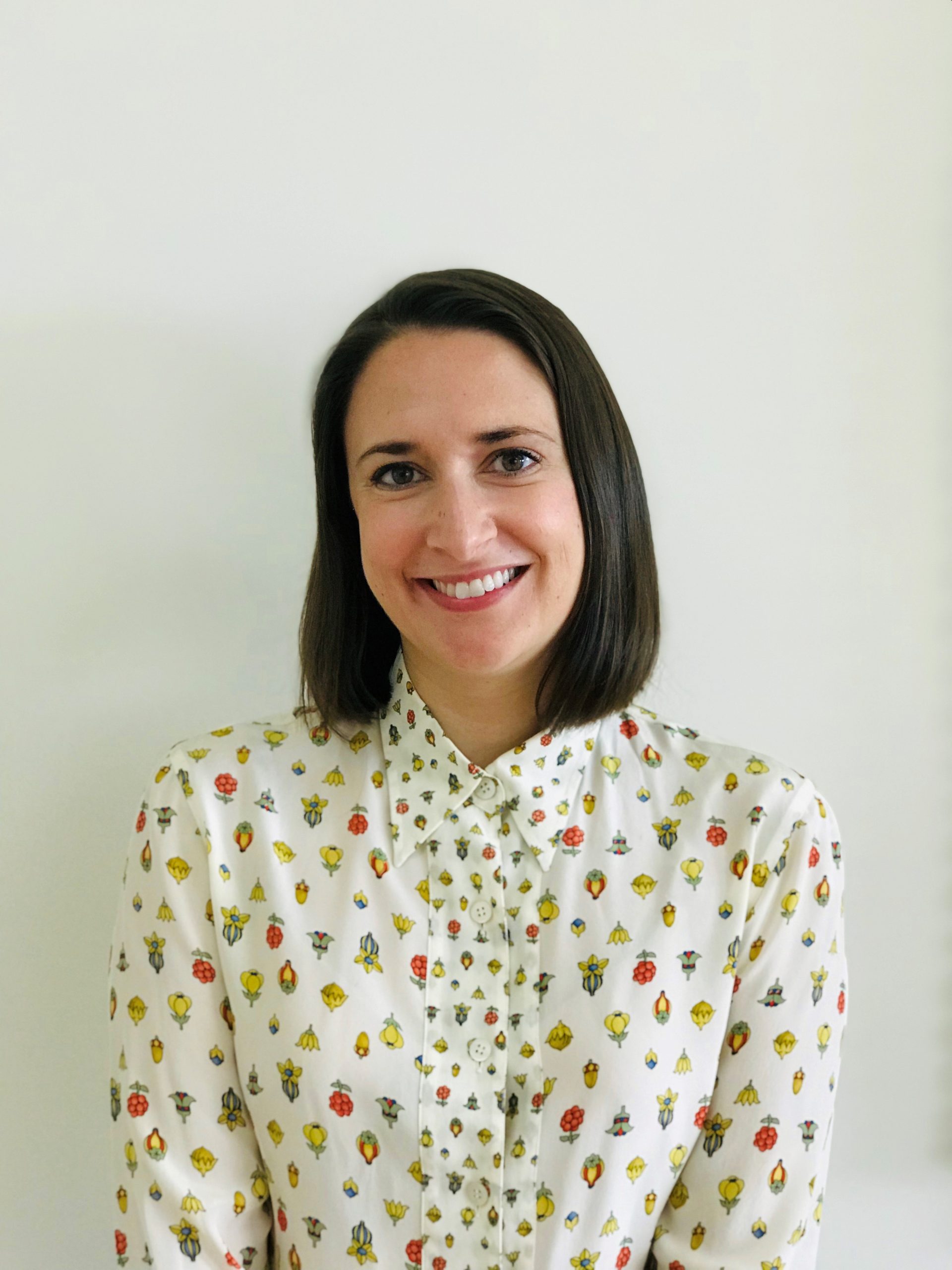 Dr. Fales is an Associate Professor in the Department of Psychology at Washington State University. She received her doctorate in clinical psychology from the University of Maine in 2012. Dr. Fales developed a passion for pediatric pain prevention during her clinical internship in child-clinical/pediatric psychology at Oregon Health & Sciences University. She subsequently spent two years as a post-doctoral fellow at Seattle Children’s Research Institute contributing to clinical trials research for youth with chronic pain and their families. Dr. Fales’s independent areas of inquiry are focused on the social functioning of adolescents with chronic pain, including how parental and peer interaction factors may predict youth’s pain characteristics, disability, and psychosocial outcomes. She also conducts research on health factors related to cannabis use in adolescent and young adult populations. Dr. Fales’s work has been supported by the Society of Pediatric Psychology, the American Pain Society, and the National Institutes of Health.
Dr. Fales is an Associate Professor in the Department of Psychology at Washington State University. She received her doctorate in clinical psychology from the University of Maine in 2012. Dr. Fales developed a passion for pediatric pain prevention during her clinical internship in child-clinical/pediatric psychology at Oregon Health & Sciences University. She subsequently spent two years as a post-doctoral fellow at Seattle Children’s Research Institute contributing to clinical trials research for youth with chronic pain and their families. Dr. Fales’s independent areas of inquiry are focused on the social functioning of adolescents with chronic pain, including how parental and peer interaction factors may predict youth’s pain characteristics, disability, and psychosocial outcomes. She also conducts research on health factors related to cannabis use in adolescent and young adult populations. Dr. Fales’s work has been supported by the Society of Pediatric Psychology, the American Pain Society, and the National Institutes of Health.
 Dr. Jillian Vinall Miller is a Developmental Neuroscientist and Assistant Professor in the Department of Anesthesiology, Perioperative and Pain Medicine at the University of Calgary. She leads the Pediatric Anesthesia, Imaging & Neurodevelopmental Science a.k.a. PAINS lab at the Alberta Children’s Hospital. Dr. Miller is committed to exploring the impact of pain on the developing brain, and the mechanisms underlying chronic pain in youth. She utilizes a variety of biobehavioral methods to explore these research questions, including state-of-the-art neuroimaging techniques. The goal of her research program is to develop effective, evidence-based, targeted interventions to improve the long-term outcomes of vulnerable populations of youth and their families.Dr. Jillian Vinall Miller is a Developmental Neuroscientist and Assistant Professor in the Department of Anesthesiology, Perioperative and Pain Medicine at the University of Calgary. She leads the Pediatric Anesthesia, Imaging & Neurodevelopmental Science a.k.a. PAINS lab at the Alberta Children’s Hospital. Dr. Miller is committed to exploring the impact of pain on the developing brain, and the mechanisms underlying chronic pain in youth. She utilizes a variety of biobehavioral methods to explore these research questions, including state-of-the-art neuroimaging techniques. The goal of her research program is to develop effective, evidence-based, targeted interventions to improve the long-term outcomes of vulnerable populations of youth and their families.
Dr. Jillian Vinall Miller is a Developmental Neuroscientist and Assistant Professor in the Department of Anesthesiology, Perioperative and Pain Medicine at the University of Calgary. She leads the Pediatric Anesthesia, Imaging & Neurodevelopmental Science a.k.a. PAINS lab at the Alberta Children’s Hospital. Dr. Miller is committed to exploring the impact of pain on the developing brain, and the mechanisms underlying chronic pain in youth. She utilizes a variety of biobehavioral methods to explore these research questions, including state-of-the-art neuroimaging techniques. The goal of her research program is to develop effective, evidence-based, targeted interventions to improve the long-term outcomes of vulnerable populations of youth and their families.Dr. Jillian Vinall Miller is a Developmental Neuroscientist and Assistant Professor in the Department of Anesthesiology, Perioperative and Pain Medicine at the University of Calgary. She leads the Pediatric Anesthesia, Imaging & Neurodevelopmental Science a.k.a. PAINS lab at the Alberta Children’s Hospital. Dr. Miller is committed to exploring the impact of pain on the developing brain, and the mechanisms underlying chronic pain in youth. She utilizes a variety of biobehavioral methods to explore these research questions, including state-of-the-art neuroimaging techniques. The goal of her research program is to develop effective, evidence-based, targeted interventions to improve the long-term outcomes of vulnerable populations of youth and their families.
 Dr. Katz is a world-recognized leader in the field of pain, known for his ground-breaking research in phantom limb pain, pre-emptive analgesia, and transitional pain medicine. He is a Distinguished Research Professor of Psychology at York University, Professor in the Department of Anesthesiology & Pain Medicine at the University of Toronto, and Research Lead of the Transitional Pain Service in the Department of Anesthesia and Pain Management at the Toronto General Hospital. He is the inaugural Editor-in-Chief of the Canadian Journal of Pain, the official journal of the Canadian Pain Society. He has published extensively and has received numerous awards for research excellence. Dr. Katz’s program of research explores factors responsible for the transition of acute, time-limited pain to chronic, pathological pain after major surgery, including cancer-related procedures and transplant surgeries. He is evaluating interventions, such as specialized yoga programs, clinical hypnosis, and other mind-body treatments to reduce acute post-operative pain and prevent the transition to chronicity.
Dr. Katz is a world-recognized leader in the field of pain, known for his ground-breaking research in phantom limb pain, pre-emptive analgesia, and transitional pain medicine. He is a Distinguished Research Professor of Psychology at York University, Professor in the Department of Anesthesiology & Pain Medicine at the University of Toronto, and Research Lead of the Transitional Pain Service in the Department of Anesthesia and Pain Management at the Toronto General Hospital. He is the inaugural Editor-in-Chief of the Canadian Journal of Pain, the official journal of the Canadian Pain Society. He has published extensively and has received numerous awards for research excellence. Dr. Katz’s program of research explores factors responsible for the transition of acute, time-limited pain to chronic, pathological pain after major surgery, including cancer-related procedures and transplant surgeries. He is evaluating interventions, such as specialized yoga programs, clinical hypnosis, and other mind-body treatments to reduce acute post-operative pain and prevent the transition to chronicity.
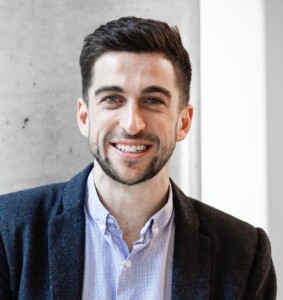 Dr. Joshua Pate is a Senior Lecturer at the University of Technology Sydney (UTS). His research investigates a child’s concept of pain and focuses on translating complex pain science into accessible knowledge for children, families, and clinicians.
Dr. Joshua Pate is a Senior Lecturer at the University of Technology Sydney (UTS). His research investigates a child’s concept of pain and focuses on translating complex pain science into accessible knowledge for children, families, and clinicians.
A 2024 NSW Young Tall Poppy, Dr. Pate pioneers innovative educational interventions. He is the author of the acclaimed “Zoe and Zak’s Pain Hacks” book series, which empowers children with key scientific concepts about pain in a fun, interactive way. His work extends to developing and testing educational resources in schools, online, and in clinics, and he was involved in launching PICH Down-Under, an Australian-based consortium of the Pain in Child Health (PICH) research training program.
Formerly a senior physiotherapist in a hospital pain clinic, Dr. Pate’s work is driven by a passion to mitigate the burden of chronic pain. Through his research, teaching, and engaging science communication, including a popular TEDx Talk, he aims to empower the next generation with the tools to understand and manage pain effectively, fostering better long-term health outcomes.
 Dr. Katie Birnie, PhD RPsych, is a Clinical Psychologist and Asssociate Professor at the University of Calgary where she leads Partnering For Pain, a research program striving towards quality equitable pain management for children through partnerships with youth, families, health professionals, policymakers, hospitals, and community organizations. Dr. Birnie is the Associate Scientific Director of Solutions for Kids in Pain (SKIP), a national network mobilizing evidence-based solutions for children’s pain through coordination and collaboration. Dr. Birnie has published more than 120 scientific publications, including on acute and chronic pain assessment and management, and health services and systems design. She chaired the working group that developed the world’s first national health standard for Pediatric Pain Management in 2023 in partnership with SKIP and the Health Standards Organization (CAN/HSO 13200:2023). Dr. Birnie’s work has been shared via CBC News, CTV News, Global News, the Washington Post, Radio Canada International, and The Globe and Mail, among others. She is a passionate advocate for integrating patients and families into the heart of health research, healthcare delivery, and health systems design. Dr. Birnie’s work is a testament to the power of partnership and the importance of patient-oriented research in transforming healthcare.
Dr. Katie Birnie, PhD RPsych, is a Clinical Psychologist and Asssociate Professor at the University of Calgary where she leads Partnering For Pain, a research program striving towards quality equitable pain management for children through partnerships with youth, families, health professionals, policymakers, hospitals, and community organizations. Dr. Birnie is the Associate Scientific Director of Solutions for Kids in Pain (SKIP), a national network mobilizing evidence-based solutions for children’s pain through coordination and collaboration. Dr. Birnie has published more than 120 scientific publications, including on acute and chronic pain assessment and management, and health services and systems design. She chaired the working group that developed the world’s first national health standard for Pediatric Pain Management in 2023 in partnership with SKIP and the Health Standards Organization (CAN/HSO 13200:2023). Dr. Birnie’s work has been shared via CBC News, CTV News, Global News, the Washington Post, Radio Canada International, and The Globe and Mail, among others. She is a passionate advocate for integrating patients and families into the heart of health research, healthcare delivery, and health systems design. Dr. Birnie’s work is a testament to the power of partnership and the importance of patient-oriented research in transforming healthcare.
 Dr. Katelynn Boerner (she/her) is a clinician-scientist passionate about making pain research and care more accessible and equitable for young people. She is a leading expert on the role of sex, gender, and neurodiversity in pain. Dr. Boerner completed her PhD in Clinical Psychology at Dalhousie University, and residency in Child Clinical Psychology at the Children’s Hospital of Eastern Ontario. This was followed by postdoctoral fellowships in Psychiatry and Pediatrics at the University of British Columbia. Dr. Boerner is actively involved in leadership positions with the Sex, Gender, and Racial Differences in Pain Special Interest Group of the International Association for the Study of Pain, and the Gender Health Special Interest Group of the Society of Pediatric Psychology. In addition to her work, she is an amateur pianist, a fair-weather runner, the proud mum of a kindergartener, and is always on the hunt for an amazing coffee.
Dr. Katelynn Boerner (she/her) is a clinician-scientist passionate about making pain research and care more accessible and equitable for young people. She is a leading expert on the role of sex, gender, and neurodiversity in pain. Dr. Boerner completed her PhD in Clinical Psychology at Dalhousie University, and residency in Child Clinical Psychology at the Children’s Hospital of Eastern Ontario. This was followed by postdoctoral fellowships in Psychiatry and Pediatrics at the University of British Columbia. Dr. Boerner is actively involved in leadership positions with the Sex, Gender, and Racial Differences in Pain Special Interest Group of the International Association for the Study of Pain, and the Gender Health Special Interest Group of the Society of Pediatric Psychology. In addition to her work, she is an amateur pianist, a fair-weather runner, the proud mum of a kindergartener, and is always on the hunt for an amazing coffee.
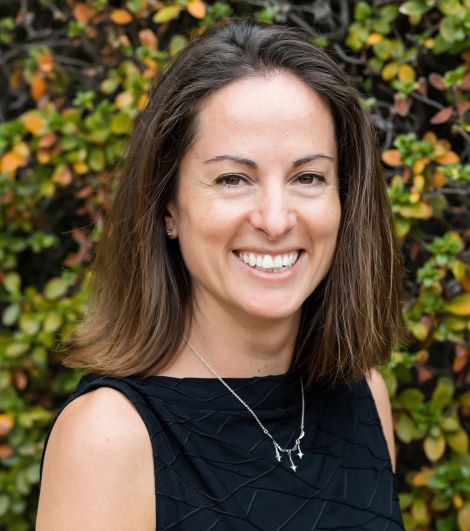 Dr. Simons is an Associate Professor in the Department of Anesthesiology, Perioperative, and Pain Medicine at Stanford University School of Medicine. She directs the Stanford Biobehavioral Pediatric Pain (BPP) Lab and is clinical psychologist who evaluates and treats children and adolescents who present with chronic pain in Pediatric Pain Management Clinic at Stanford Children’s Health. Dr. Simons’ research spans assessment scale development, treatment intervention, and experimental and neuroimaging methods to gain a mechanistic understanding of altered psychological processes in children with chronic pain and their parents.
Dr. Simons is an Associate Professor in the Department of Anesthesiology, Perioperative, and Pain Medicine at Stanford University School of Medicine. She directs the Stanford Biobehavioral Pediatric Pain (BPP) Lab and is clinical psychologist who evaluates and treats children and adolescents who present with chronic pain in Pediatric Pain Management Clinic at Stanford Children’s Health. Dr. Simons’ research spans assessment scale development, treatment intervention, and experimental and neuroimaging methods to gain a mechanistic understanding of altered psychological processes in children with chronic pain and their parents.
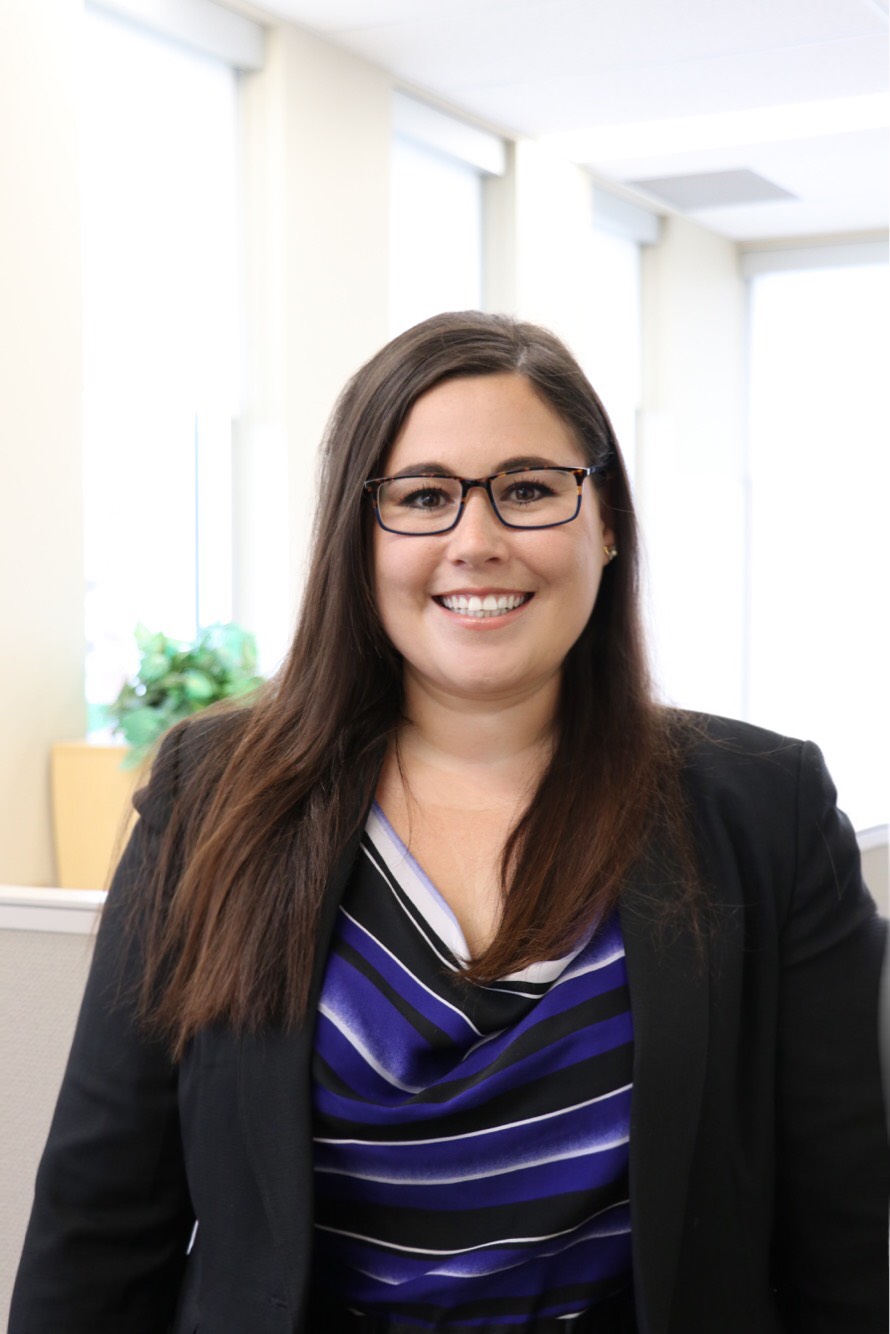 Dr. Lauren E Kelly is an Assistant Professor in the Department of Pediatrics & Child Health and the Department of Pharmacology and Therapeutics at the University of Manitoba. She is a Scientist and Director of Clinical Trials at the Children’s Hospital Research Institute of Manitoba and a Clinical Trialist at the Centre for Healthcare Innovation. She is the Scientific Director of Canadian Childhood Cannabinoid Clinical Trials (www.C4Trials.org), a research platform that studies the safety of cannabis products used for medical purposes in the pediatric population. Dr. Kelly completed a RCT on pain management following tonsillectomy in children and is currently investigating the tolerability of cannabis-based health products in children with chronic daily headache and for symptom management in pediatric oncology. Her research program engages people with lived experience to co-design meaningful clinical research on pain interventions in children. More on her research program can be found at www.PharmaLauren.com.
Dr. Lauren E Kelly is an Assistant Professor in the Department of Pediatrics & Child Health and the Department of Pharmacology and Therapeutics at the University of Manitoba. She is a Scientist and Director of Clinical Trials at the Children’s Hospital Research Institute of Manitoba and a Clinical Trialist at the Centre for Healthcare Innovation. She is the Scientific Director of Canadian Childhood Cannabinoid Clinical Trials (www.C4Trials.org), a research platform that studies the safety of cannabis products used for medical purposes in the pediatric population. Dr. Kelly completed a RCT on pain management following tonsillectomy in children and is currently investigating the tolerability of cannabis-based health products in children with chronic daily headache and for symptom management in pediatric oncology. Her research program engages people with lived experience to co-design meaningful clinical research on pain interventions in children. More on her research program can be found at www.PharmaLauren.com.
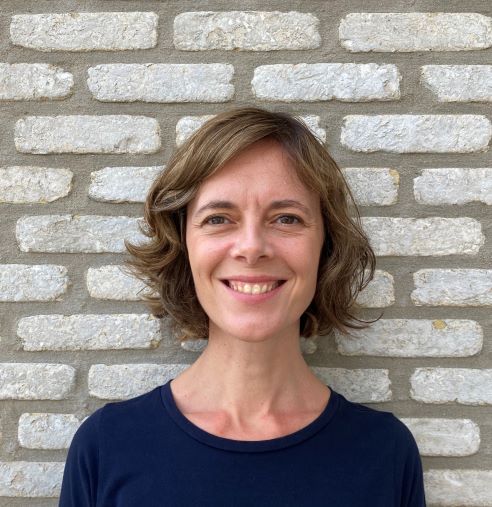 Liesbet Goubert is Full Professor at Ghent University, Belgium (http://www.ghplab.ugent.be). In her research, she focuses on interpersonal dynamics of (chronic) pain and illness in children and adults. She is particularly interested in resilience mechanisms that may account for the sustainment of adaptive functioning and well-being in the presence of chronic pain and illness. Her scholarly contributions have been recognized with several scientific awards, including the IASP-SIG Early Career Award in Pediatric Pain and the EFIC Grünenthal Grant Award. In 2017, she received the British Pain Society Medal in recognition for her outstanding contributions to the clinical science of pain.
Liesbet Goubert is Full Professor at Ghent University, Belgium (http://www.ghplab.ugent.be). In her research, she focuses on interpersonal dynamics of (chronic) pain and illness in children and adults. She is particularly interested in resilience mechanisms that may account for the sustainment of adaptive functioning and well-being in the presence of chronic pain and illness. Her scholarly contributions have been recognized with several scientific awards, including the IASP-SIG Early Career Award in Pediatric Pain and the EFIC Grünenthal Grant Award. In 2017, she received the British Pain Society Medal in recognition for her outstanding contributions to the clinical science of pain.
She is a Council member of the IASP SIG Pain in Childhood (2018–2023). She has been the scientific chair of different international conferences, including the 11th International Symposium on Pediatric Pain (2017, Malaysia) and the European Pediatric Psychology Conference (2018, Belgium).
She also works as a clinical psychologist within a multidisciplinary primary care setting. She is the mother of two (grown-up) children.
 Dr. Lindsey Cohen is a distinguished university professor and the chair of psychology at Georgia State University, where he has been on the faculty since 2004. Dr. Cohen conducts grant-funded research in pediatric psychology, which involves the interplay of clinical child psychology and pediatric medicine. He is the director of the Child Health and Medical Pain (CHAMP) lab, which has a long-standing area of interest in the assessment and treatment of children’s acute medical pain (e.g., injections, bone fracture casting) as well as chronic pain. Dr. Cohen has published nearly 150 peer-reviewed articles and chapters and presented CHAMP lab research at national and international pediatric psychology and pediatric pain meetings. Dr. Cohen is particularly invested in mentoring, and he has directed 4 consecutive federally funded grants (2010-present) focused on training graduate students to learn and administer evidence-based, culturally sensitive services on multidisciplinary teams for children with medical conditions.
Dr. Lindsey Cohen is a distinguished university professor and the chair of psychology at Georgia State University, where he has been on the faculty since 2004. Dr. Cohen conducts grant-funded research in pediatric psychology, which involves the interplay of clinical child psychology and pediatric medicine. He is the director of the Child Health and Medical Pain (CHAMP) lab, which has a long-standing area of interest in the assessment and treatment of children’s acute medical pain (e.g., injections, bone fracture casting) as well as chronic pain. Dr. Cohen has published nearly 150 peer-reviewed articles and chapters and presented CHAMP lab research at national and international pediatric psychology and pediatric pain meetings. Dr. Cohen is particularly invested in mentoring, and he has directed 4 consecutive federally funded grants (2010-present) focused on training graduate students to learn and administer evidence-based, culturally sensitive services on multidisciplinary teams for children with medical conditions.
 Dr. Caes completed her PhD, focused on understanding parental responses towards child pain, at Ghent University, Belgium and undertook her postdoctoral training at the Centre for Pediatric Pain Research, Canada. She was a lecturer at NUI Galway, Ireland, before taking up her current lectureship at the Division of Psychology, Faculty of Natural Sciences, University of Stirling. Dr Caes’ research interests concern the social context of acute and chronic paediatric pain experiences. Her research aims to further understanding of the mutual influences between parents and children during painful experiences and how these change throughout childhood development, i.e. from pre-school age to young adulthood. She is also passionate about ensuring that our knowledge on the role of social factors in explaining child pain experiences translates into better treatment opportunities for families of a child with chronic pain. More details on her research and overview of her publications can be found at https://www.stir.ac.uk/people/32368.
Dr. Caes completed her PhD, focused on understanding parental responses towards child pain, at Ghent University, Belgium and undertook her postdoctoral training at the Centre for Pediatric Pain Research, Canada. She was a lecturer at NUI Galway, Ireland, before taking up her current lectureship at the Division of Psychology, Faculty of Natural Sciences, University of Stirling. Dr Caes’ research interests concern the social context of acute and chronic paediatric pain experiences. Her research aims to further understanding of the mutual influences between parents and children during painful experiences and how these change throughout childhood development, i.e. from pre-school age to young adulthood. She is also passionate about ensuring that our knowledge on the role of social factors in explaining child pain experiences translates into better treatment opportunities for families of a child with chronic pain. More details on her research and overview of her publications can be found at https://www.stir.ac.uk/people/32368.
 Lonnie Zeltzer, MD, is an Emerita Distinguished Professor of Pediatrics, Anesthesiology, Psychiatry and Biobehavioral Sciences at the David Geffen School of Medicine at UCLA and prior Founder/Director of the UCLA Pediatric Pain and Palliative Care Program. She was an invited member of the Institute of Medicine’s (IOM) Committee on Pain Care, Research, and Education and co-author of the IOM report on Transforming Pain in America. She has received many awards, including a 2009 Clinical Center of Excellence in Pain Management Award for her program from the American Pain Society (APS). She was President of the Special Interest Group on Pain in Childhood in the International Association for the Study of Pain (IASP) and past-Secretary of the APS. She was an invited member of the Steering Committee guiding NIH on directions for pain research, an invited member of the FDA Special Committee on Analgesia and Anesthesia Products, the NIH National Heart, Lung, Blood Institute’s Expert Committee on Hemoglobinopathies as a pain expert, and the CDC on the new guidelines for opioids in adolescents. She has over 400 publications, 85 textbook chapters, and 4 books, including her most recent, “The Smart Brain Pain Syndrome.” Her non-profit Creative Healing for Youth in Pain (CHYP) (www.mychyp.org) provides online educational and peer support programs for youth(13-24) and parents, and mind-body creative arts experiences for youth in pain. She co-directs Whole Child LA pediatric complex pain clinic with her husband Dr. Paul Zeltzer. She continues to mentor graduate students and junior faculty in their pain research.
Lonnie Zeltzer, MD, is an Emerita Distinguished Professor of Pediatrics, Anesthesiology, Psychiatry and Biobehavioral Sciences at the David Geffen School of Medicine at UCLA and prior Founder/Director of the UCLA Pediatric Pain and Palliative Care Program. She was an invited member of the Institute of Medicine’s (IOM) Committee on Pain Care, Research, and Education and co-author of the IOM report on Transforming Pain in America. She has received many awards, including a 2009 Clinical Center of Excellence in Pain Management Award for her program from the American Pain Society (APS). She was President of the Special Interest Group on Pain in Childhood in the International Association for the Study of Pain (IASP) and past-Secretary of the APS. She was an invited member of the Steering Committee guiding NIH on directions for pain research, an invited member of the FDA Special Committee on Analgesia and Anesthesia Products, the NIH National Heart, Lung, Blood Institute’s Expert Committee on Hemoglobinopathies as a pain expert, and the CDC on the new guidelines for opioids in adolescents. She has over 400 publications, 85 textbook chapters, and 4 books, including her most recent, “The Smart Brain Pain Syndrome.” Her non-profit Creative Healing for Youth in Pain (CHYP) (www.mychyp.org) provides online educational and peer support programs for youth(13-24) and parents, and mind-body creative arts experiences for youth in pain. She co-directs Whole Child LA pediatric complex pain clinic with her husband Dr. Paul Zeltzer. She continues to mentor graduate students and junior faculty in their pain research.
 Dr. Bueno earned her MScN in 2006 and her PhD in 2011, both from the School of Nursing of the University of São Paulo in Brazil. She then served as an Assistant Professor at the School of Nursing of the Federal University of Minas Gerais (2012-2014) and the School of Nursing of the University of São Paulo (2014-2017) before moving to Canada for a postdoctoral fellowship at The Hospital for Sick Children (2017 to 2021). She was a knowledge mobilization specialist from 2021 to 2024 at SickKids. Currently, Dr Bueno is an Assistant Professor at the Lawrence Bloomberg Faculty of Nursing at the University of Toronto. Dr. Bueno is a member of the Executive Committee of the University of Toronto Centre for the Study of Pain (UTCSP) and a co-chair of the Knowledge Mobilization and Networking Subcommittee of the UTCSP. She is also a member of the Grupo de Interesse em Ciência de Disseminação e Implementação de Países de Língua Portuguesa (Interest Group in Dissemination and Implementation Science in Portuguese-Speaking Countries). Dr. Bueno’s research program focuses on generating and synthesizing evidence on infant pain, as well as developing, evaluating, adapting, and implementing evidence-based interventions in neonatal pain and care.
Dr. Bueno earned her MScN in 2006 and her PhD in 2011, both from the School of Nursing of the University of São Paulo in Brazil. She then served as an Assistant Professor at the School of Nursing of the Federal University of Minas Gerais (2012-2014) and the School of Nursing of the University of São Paulo (2014-2017) before moving to Canada for a postdoctoral fellowship at The Hospital for Sick Children (2017 to 2021). She was a knowledge mobilization specialist from 2021 to 2024 at SickKids. Currently, Dr Bueno is an Assistant Professor at the Lawrence Bloomberg Faculty of Nursing at the University of Toronto. Dr. Bueno is a member of the Executive Committee of the University of Toronto Centre for the Study of Pain (UTCSP) and a co-chair of the Knowledge Mobilization and Networking Subcommittee of the UTCSP. She is also a member of the Grupo de Interesse em Ciência de Disseminação e Implementação de Países de Língua Portuguesa (Interest Group in Dissemination and Implementation Science in Portuguese-Speaking Countries). Dr. Bueno’s research program focuses on generating and synthesizing evidence on infant pain, as well as developing, evaluating, adapting, and implementing evidence-based interventions in neonatal pain and care.
 Dr. Marsha Campbell-Yeo, PhD, NNP-BC, MN, RN is a neonatal nurse practitioner, clinician scientist, and Full Professor at the School of Nursing, Faculty of Health, Dalhousie University and holds cross appointments in the Department of Pediatrics, and Psychology and Neuroscience. Her Canada Foundation of Innovation funded research lab, MOM-LINC (Mechanisms, Outcome and Mobilization of Maternally-Led Interventions to Improve Newborn Care) focuses on ways parent-led interventions can improve outcomes of at-risk newborns specifically related to pain, stress and neurodevelopment, novel knowledge synthesis and dissemination methods, and digital e-heath interventions aimed at enhancing parental, family and care provider engagement. She is a member of the Royal Society of Canada’s College of New Scholars, Artists and Scientists, CIHR New Investigator and past Canadian Pain Society awardee. She is President-Elect of the Pain in Childhood Special Interest Group of the International Association for the Study of Pain, and the Inaugural Chair of the Canadian Premature Babies Foundation Scientific Advisory Committee.
Dr. Marsha Campbell-Yeo, PhD, NNP-BC, MN, RN is a neonatal nurse practitioner, clinician scientist, and Full Professor at the School of Nursing, Faculty of Health, Dalhousie University and holds cross appointments in the Department of Pediatrics, and Psychology and Neuroscience. Her Canada Foundation of Innovation funded research lab, MOM-LINC (Mechanisms, Outcome and Mobilization of Maternally-Led Interventions to Improve Newborn Care) focuses on ways parent-led interventions can improve outcomes of at-risk newborns specifically related to pain, stress and neurodevelopment, novel knowledge synthesis and dissemination methods, and digital e-heath interventions aimed at enhancing parental, family and care provider engagement. She is a member of the Royal Society of Canada’s College of New Scholars, Artists and Scientists, CIHR New Investigator and past Canadian Pain Society awardee. She is President-Elect of the Pain in Childhood Special Interest Group of the International Association for the Study of Pain, and the Inaugural Chair of the Canadian Premature Babies Foundation Scientific Advisory Committee.
 Dr. Massieh Moayedi is an Associate Professor in the Faculty of Dentistry, University of Toronto (UofT). He holds a Canada Research Chair (Tier 2) in Pain NeuroImaging, is a UofT Centre for the Study of Pain Scientist, and co-Director of the Centre for Multimodal Sensorimotor and Pain Research. Moayedi received his PhD under the supervision of Dr. Karen Davis, and did a postdoctoral fellowship at University College London under the supervision of Dr. Giandomenico Iannetti. He is Secretary of the Canadian Pain Society, and Councillor the International Association for the Study of Pain. Moayedi’s interest in pain research is borne out of personal lived experience with pain. His work uses brain imaging and behavioural paradigms to delineate the mechanisms of acute and chronic pain, with a goal of identifying novel therapeutic targets. His has an extensive collaborative network of clinicians and scientists with complementary expertise to answer complex questions in pain physiology.
Dr. Massieh Moayedi is an Associate Professor in the Faculty of Dentistry, University of Toronto (UofT). He holds a Canada Research Chair (Tier 2) in Pain NeuroImaging, is a UofT Centre for the Study of Pain Scientist, and co-Director of the Centre for Multimodal Sensorimotor and Pain Research. Moayedi received his PhD under the supervision of Dr. Karen Davis, and did a postdoctoral fellowship at University College London under the supervision of Dr. Giandomenico Iannetti. He is Secretary of the Canadian Pain Society, and Councillor the International Association for the Study of Pain. Moayedi’s interest in pain research is borne out of personal lived experience with pain. His work uses brain imaging and behavioural paradigms to delineate the mechanisms of acute and chronic pain, with a goal of identifying novel therapeutic targets. His has an extensive collaborative network of clinicians and scientists with complementary expertise to answer complex questions in pain physiology.
 Maria Pavlova is an Assistant Professor in the Clinical Child and Adolescent Psychology at the University of Guelph. Her research program examines the intersection of pain and trauma, with a focus on child maltreatment, and ways to support parent-child dyads in processing these distressing experiences to prevent the development of traumatic stress. Dr. Pavlova’s overarching goal is to create, examine, and disseminate efficacious and equitable family-centered interventions to prevent pediatric pain and child maltreatment from becoming distressing, chronic experiences and to empower youth in their health journeys.
Maria Pavlova is an Assistant Professor in the Clinical Child and Adolescent Psychology at the University of Guelph. Her research program examines the intersection of pain and trauma, with a focus on child maltreatment, and ways to support parent-child dyads in processing these distressing experiences to prevent the development of traumatic stress. Dr. Pavlova’s overarching goal is to create, examine, and disseminate efficacious and equitable family-centered interventions to prevent pediatric pain and child maltreatment from becoming distressing, chronic experiences and to empower youth in their health journeys.
Dr. Manon Ranger is a registered nurse, Assistant Professor in the School of Nursing at The University of British Columbia, and Investigator at the BC Children’s Hospital Research Institute in Vancouver Canada, with affiliate memberships in Pediatrics and Graduate Program in Neuroscience. As a nurse scientist, she has created a cross-disciplinary research framework integrating pre-clinical research with clinical studies in preterm neonates undergoing intensive neonatal care to uncover mechanisms of vulnerability to early adversity in relation to brain development. Dr. Ranger’s lab examines the interactions between the nervous and immune systems, with a particular focus on pain-related stress exposure during the critical period of early-life development, to prevent changes to the brain, and thereby improve outcomes. Identifying brain-protective interventions with which to manage neonatal procedural pain is essential and is also an important area of her research. Her program promotes transdisciplinary research between Nursing Science and fields such as developmental neuroscience, neurobiology, medicine/neonatology, occupational therapy, and engineering.
 Melissa Pielech, PhD is an Assistant Professor in the departments of Psychiatry and Human Behavior (Warren Alpert Medical School) and Behavioral and Social Sciences (School of Public Health) at Brown University and a Licensed Clinical Psychologist. Over the past 10 years, Dr.Pielech has developed unique cross-cutting expertise in the etiology, co-occurrence, and treatment of pain and substance use behaviors in adolescents and young adults. Her National Institutes of Health funded program of research focuses on 1) understanding relations between pain and substance use behaviors in youth using innovative methodologies (i.e. qualitative, ecological momentary assessment), 2) patient-centered development and evaluation of interventions co-addressing pain and substance use, and 3) addressing barriers to family involvement in youth opioid use disorder treatment. She also provides clinical services to youth with persistent pain and somatic symptoms as part of the Children’s Rehabilitation Services multidisciplinary team (OT, PT, SLP) at Hasbro Children’s Hospital.
Melissa Pielech, PhD is an Assistant Professor in the departments of Psychiatry and Human Behavior (Warren Alpert Medical School) and Behavioral and Social Sciences (School of Public Health) at Brown University and a Licensed Clinical Psychologist. Over the past 10 years, Dr.Pielech has developed unique cross-cutting expertise in the etiology, co-occurrence, and treatment of pain and substance use behaviors in adolescents and young adults. Her National Institutes of Health funded program of research focuses on 1) understanding relations between pain and substance use behaviors in youth using innovative methodologies (i.e. qualitative, ecological momentary assessment), 2) patient-centered development and evaluation of interventions co-addressing pain and substance use, and 3) addressing barriers to family involvement in youth opioid use disorder treatment. She also provides clinical services to youth with persistent pain and somatic symptoms as part of the Children’s Rehabilitation Services multidisciplinary team (OT, PT, SLP) at Hasbro Children’s Hospital.
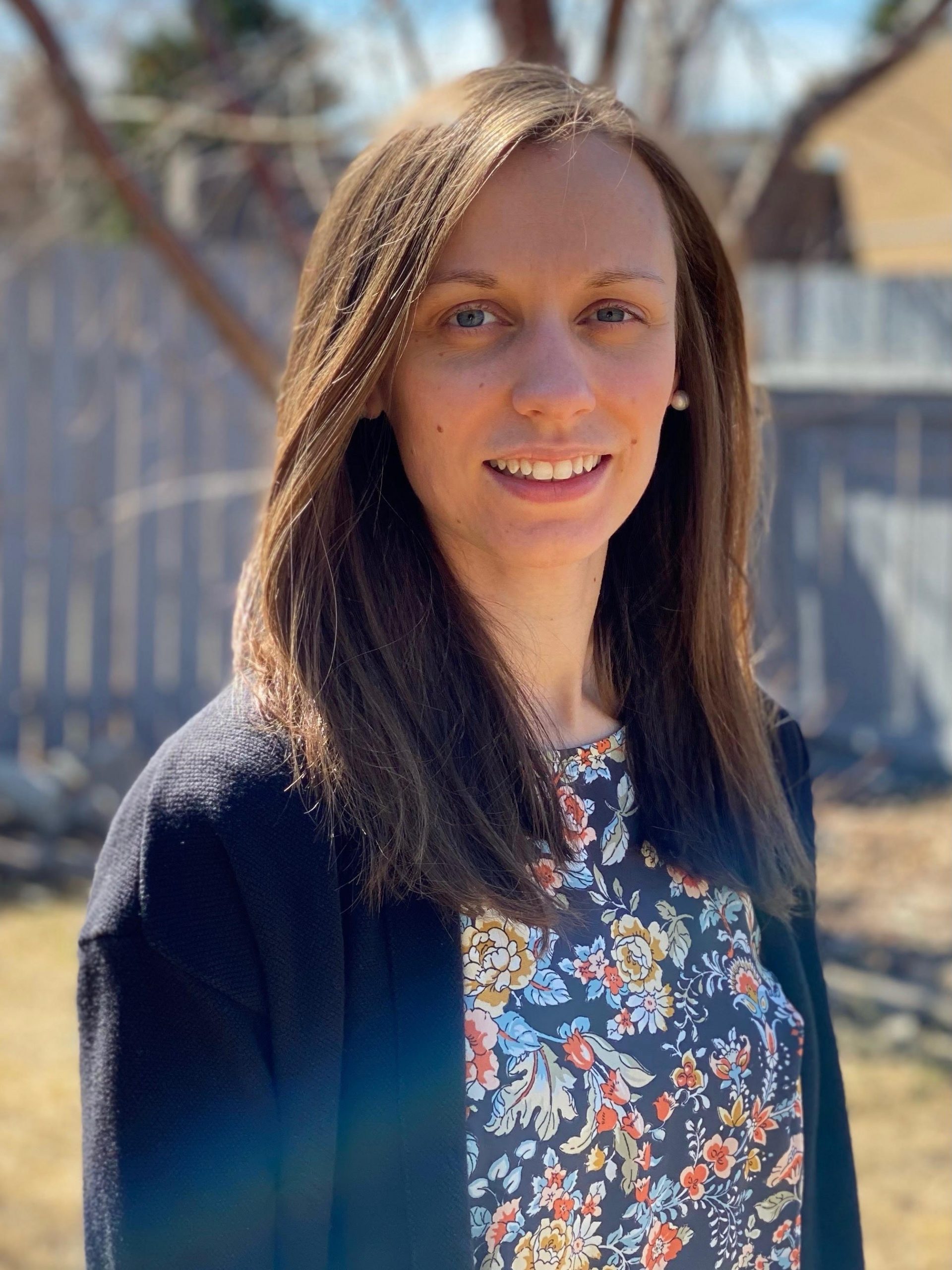 Dr. Michelle Gagnon is an Assistant Professor in the Department of Psychology and Health Studies at the University of Saskatchewan. She completed her Ph.D. in Clinical Psychology at the University of Regina and her pre-doctoral internship at the Hospital for Sick Children. Dr. Gagnon’s research examines parent-child interactions and the role of emotion regulation in pain experiences. She is also interested in understanding social and psychological functioning, and long-term outcomes among adolescents who experience menstrual pain. Dr. Gagnon is a registered doctoral psychologist in the province of Saskatchewan and provides psychological services to pediatric and adult populations.
Dr. Michelle Gagnon is an Assistant Professor in the Department of Psychology and Health Studies at the University of Saskatchewan. She completed her Ph.D. in Clinical Psychology at the University of Regina and her pre-doctoral internship at the Hospital for Sick Children. Dr. Gagnon’s research examines parent-child interactions and the role of emotion regulation in pain experiences. She is also interested in understanding social and psychological functioning, and long-term outcomes among adolescents who experience menstrual pain. Dr. Gagnon is a registered doctoral psychologist in the province of Saskatchewan and provides psychological services to pediatric and adult populations.
 Natoshia R. Cunningham, PhD, is a tenured associate professor in the Department of Family Medicine at Michigan State University. A clinical psychologist by training, her research focuses on 1) psychological treatments for youth with chronic health conditions involving pain and co-occurring mental health symptoms, 2) neural mechanisms of effect of psychological therapies for pediatric chronic pain, and 3) increasing access to behavioral healthcare for pediatric chronic pain using community-engaged and culturally adapted methods. Dr. Cunningham has published over 60 scientific papers in peer-reviewed journals, currently holds grants from the National Institutes of Health, the US Department of Defense, and several foundations. She is committed to training and mentoring the next generation of clinical pediatric pain scientists.
Natoshia R. Cunningham, PhD, is a tenured associate professor in the Department of Family Medicine at Michigan State University. A clinical psychologist by training, her research focuses on 1) psychological treatments for youth with chronic health conditions involving pain and co-occurring mental health symptoms, 2) neural mechanisms of effect of psychological therapies for pediatric chronic pain, and 3) increasing access to behavioral healthcare for pediatric chronic pain using community-engaged and culturally adapted methods. Dr. Cunningham has published over 60 scientific papers in peer-reviewed journals, currently holds grants from the National Institutes of Health, the US Department of Defense, and several foundations. She is committed to training and mentoring the next generation of clinical pediatric pain scientists.
 Dr. Naveen Poonai completed his Doctor of Medicine at the University of Toronto in 2004 and his paediatric residency and emergency medicine fellowship training at Western University in 2009. He obtained his Master of Science in Health Research Methodology from McMaster University in 2013.
Dr. Naveen Poonai completed his Doctor of Medicine at the University of Toronto in 2004 and his paediatric residency and emergency medicine fellowship training at Western University in 2009. He obtained his Master of Science in Health Research Methodology from McMaster University in 2013.
Dr. Poonai is a Professor in the Departments of Paediatrics and Epidemiology & Biostatistics at Western University. He is the Chair of both the Children’s Health & Therapeutics Division of the Children’s Health Research Institute and Western University’s Health Sciences Research Ethics Board.
On a national level, he is a Decision Editor for the Canadian Journal of Emergency Medicine, and the Vice-Chair of Pediatric Emergency Research Canada (PERC).
His research interests include procedural sedation and management of acute pain in children. To this end, he has published over 100 peer-reviewed articles and has had over 20 invited speaker engagements in 6 countries. Recognitions include the Research & Innovation Award from Western University in 2025, the Faculty Scholar Award from Western University in 2024, the Provincial Innovation Award from the Academic Medical Organization of Southwestern Ontario in 2022, the Scientist of Year Award from the Children’s Health Research Institute in 2022, the Supporting Scholarship Award from the Department of Paediatrics at Western University in 2021, the Terry Klassen Young Investigator Award from Paediatric Emergency Research Canada (PERC) in 2019, the Young Investigator Award from the American College of Emergency Physicians (ACEP) in 2018, and the John Dreyer Research Excellence Award from the Division of Emergency Medicine in 2017.
 Dr. Nicole Alberts completed her PhD in Clinical Psychology at the University of Regina (Regina, Canada) followed by a post-doctoral fellowship in the Department of Rehabilitation Medicine at the University of Washington (Seattle, U.S.). After beginning her faculty career at St. Jude Children’s Research Hospital (Memphis, U.S.), she joined the Department of Psychology at Concordia University in Montreal, Canada in August 2020, where she is an Associate Professor. Dr. Alberts’ expertise is on characterizing and treating chronic pain among youth currently receiving cancer treatment and childhood cancer survivors as well as the use of digital health interventions to target pain and psychological outcomes. As a clinical health psychologist, Dr. Alberts has broad clinical experience spanning clinical health psychology and rehabilitation psychology in pediatric and adult populations. She also has clinical expertise in the assessment and treatment of perioperative pain among youth with cancer who are undergoing major surgery.
Dr. Nicole Alberts completed her PhD in Clinical Psychology at the University of Regina (Regina, Canada) followed by a post-doctoral fellowship in the Department of Rehabilitation Medicine at the University of Washington (Seattle, U.S.). After beginning her faculty career at St. Jude Children’s Research Hospital (Memphis, U.S.), she joined the Department of Psychology at Concordia University in Montreal, Canada in August 2020, where she is an Associate Professor. Dr. Alberts’ expertise is on characterizing and treating chronic pain among youth currently receiving cancer treatment and childhood cancer survivors as well as the use of digital health interventions to target pain and psychological outcomes. As a clinical health psychologist, Dr. Alberts has broad clinical experience spanning clinical health psychology and rehabilitation psychology in pediatric and adult populations. She also has clinical expertise in the assessment and treatment of perioperative pain among youth with cancer who are undergoing major surgery.
 Dr. Randi Dovland Andersen has a nursing background and holds a PhD from Karolinska Institutet in Stockholm. She is based in Norway where she works as Special Advisor/Researcher at Telemark Hospital Trust and is Associate Professor in the Research Center for Habilitation and Rehabilitation Services and Models (CHARM), at the University of Oslo. She holds grants to examine pain and pain-relieving interventions in children with cerebral palsy and is the instigator and Co-Principal Investigator for the CPPain Research Program. Her main research interests are pain assessment in non-verbal populations and the development and implementation of better pain management practices. Based in a non-English speaking setting, she also has an interest in issues related to the translation, adaptation and validation of pain scales, forms and material. She is on the Steering Committee for the Nordic research network Pain in EARly Life (PEARL) and is Associate Editor for Paediatric and Neonatal Pain.
Dr. Randi Dovland Andersen has a nursing background and holds a PhD from Karolinska Institutet in Stockholm. She is based in Norway where she works as Special Advisor/Researcher at Telemark Hospital Trust and is Associate Professor in the Research Center for Habilitation and Rehabilitation Services and Models (CHARM), at the University of Oslo. She holds grants to examine pain and pain-relieving interventions in children with cerebral palsy and is the instigator and Co-Principal Investigator for the CPPain Research Program. Her main research interests are pain assessment in non-verbal populations and the development and implementation of better pain management practices. Based in a non-English speaking setting, she also has an interest in issues related to the translation, adaptation and validation of pain scales, forms and material. She is on the Steering Committee for the Nordic research network Pain in EARly Life (PEARL) and is Associate Editor for Paediatric and Neonatal Pain.
 Dr. Rebecca Pillai Riddell is a Full Professor, Clinical Psychologist, and the Associate Vice-President Research & Innovation (Health, Sciences, Engineering) at York University. Through her leadership of the Opportunities to Understand Childhood Hurt Laboratory or OUCH Lab at York, she created the largest longitudinal cohort in the world examining acute pain behaviours in healthy young children, within the context of primary caregivers. Her current focus is leading and collaborating on a multi-million dollar, international research program seeking out to better understand infant pain assessment in the Neonatal Intensive Care Unit, including machine learning techniques. Her program is funded by CIHR, NSERC, and SSHRC operating grants. She was also selected as an inaugural member of Canada’s National Digital Research Infrastructure Organization’s Researcher Council. An award-winning research mentor, she is also passionate in addressing the major equity, diversity, and inclusion challenges in Canada’s and international research landscapes.
Dr. Rebecca Pillai Riddell is a Full Professor, Clinical Psychologist, and the Associate Vice-President Research & Innovation (Health, Sciences, Engineering) at York University. Through her leadership of the Opportunities to Understand Childhood Hurt Laboratory or OUCH Lab at York, she created the largest longitudinal cohort in the world examining acute pain behaviours in healthy young children, within the context of primary caregivers. Her current focus is leading and collaborating on a multi-million dollar, international research program seeking out to better understand infant pain assessment in the Neonatal Intensive Care Unit, including machine learning techniques. Her program is funded by CIHR, NSERC, and SSHRC operating grants. She was also selected as an inaugural member of Canada’s National Digital Research Infrastructure Organization’s Researcher Council. An award-winning research mentor, she is also passionate in addressing the major equity, diversity, and inclusion challenges in Canada’s and international research landscapes.
 Dr Rebecca Rachael Lee, PhD, is a Chartered Psychologist from the UK with a focus on applied health and psychology research in paediatric chronic pain. She conducts research into improving the assessment, communication and management of paediatric chronic pain in both research and in clinical practice, mainly in paediatric rheumatology settings. She has worked on the development and implementation of novel electronic and mobile multi-dimensional pain assessment tools for children and young people. She has also conducted research exploring healthcare professionals’ pain assessment, communication and management practices, identifying behavioural and contextual problems and developing interventions to address these challenges. More broadly, she has expertise in collecting research data exploring children’s/young peoples’, parents’ and healthcare professionals’ experiences, beliefs and perspectives about living with and managing a range of long-term pain condition.
Dr Rebecca Rachael Lee, PhD, is a Chartered Psychologist from the UK with a focus on applied health and psychology research in paediatric chronic pain. She conducts research into improving the assessment, communication and management of paediatric chronic pain in both research and in clinical practice, mainly in paediatric rheumatology settings. She has worked on the development and implementation of novel electronic and mobile multi-dimensional pain assessment tools for children and young people. She has also conducted research exploring healthcare professionals’ pain assessment, communication and management practices, identifying behavioural and contextual problems and developing interventions to address these challenges. More broadly, she has expertise in collecting research data exploring children’s/young peoples’, parents’ and healthcare professionals’ experiences, beliefs and perspectives about living with and managing a range of long-term pain condition.
 Dr. Rocío de la Vega is a faculty member of the Department of Psychology of the University of Málaga (Spain) since 2020, where she leads a line of search on pediatric pain. She completed a post-doctoral research fellowship at the Seattle Children’s Research Institute (US) under the supervision of Dr. Tonya Palermo in 2020 and a postdoctoral fellowship at the University of Washington (US) under the supervision of Dr. Mark Jensen in 2017. Her research interests are mainly focused on digital interventions for the management of pain in adolescents and in understanding the mechanisms of change that happen during treatment, in order to improve their efficacy. She is also interested in patient participation, treatment implementation and in the interrelations between sleep and pain.
Dr. Rocío de la Vega is a faculty member of the Department of Psychology of the University of Málaga (Spain) since 2020, where she leads a line of search on pediatric pain. She completed a post-doctoral research fellowship at the Seattle Children’s Research Institute (US) under the supervision of Dr. Tonya Palermo in 2020 and a postdoctoral fellowship at the University of Washington (US) under the supervision of Dr. Mark Jensen in 2017. Her research interests are mainly focused on digital interventions for the management of pain in adolescents and in understanding the mechanisms of change that happen during treatment, in order to improve their efficacy. She is also interested in patient participation, treatment implementation and in the interrelations between sleep and pain.
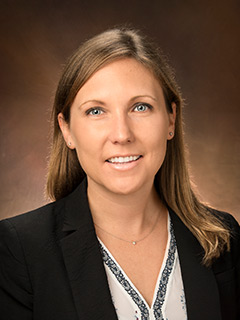 Sabrina Gmuca is an attending pediatric rheumatologist in the Division of Pediatric Rheumatology and the Center for Amplified Musculoskeletal Pain Syndrome at Children’s Hospital of Philadelphia. She is also Assistant Professor of Pediatrics at the University of Pennsylvania’s Perelman School of Medicine. Dr. Gmuca’s research seeks to enhance the care of children with chronic non-inflammatory musculoskeletal pain. Specifically, her research addresses amplified musculoskeletal pain syndrome (AMPS), which is a major public health issue because of its high prevalence, related socioeconomic burden and associated risk of opioid exposure and polypharmacy. Dr. Gmuca’s work aims to identify innovative strategies to improve long-term treatment outcomes for this patient population as well as increased accessibility to non-pharmacologic multidisciplinary treatment modalities. She is specifically interested in the role of resilience in adolescents with chronic pain and their parents, as well as the appropriate evaluation and management of neurocognitive impairment in youth with juvenile fibromyalgia syndrome. She is conducting an ongoing pilot RCT of a resilience coaching program for youth with chronic pain, funded by a K23 from the NIH.
Sabrina Gmuca is an attending pediatric rheumatologist in the Division of Pediatric Rheumatology and the Center for Amplified Musculoskeletal Pain Syndrome at Children’s Hospital of Philadelphia. She is also Assistant Professor of Pediatrics at the University of Pennsylvania’s Perelman School of Medicine. Dr. Gmuca’s research seeks to enhance the care of children with chronic non-inflammatory musculoskeletal pain. Specifically, her research addresses amplified musculoskeletal pain syndrome (AMPS), which is a major public health issue because of its high prevalence, related socioeconomic burden and associated risk of opioid exposure and polypharmacy. Dr. Gmuca’s work aims to identify innovative strategies to improve long-term treatment outcomes for this patient population as well as increased accessibility to non-pharmacologic multidisciplinary treatment modalities. She is specifically interested in the role of resilience in adolescents with chronic pain and their parents, as well as the appropriate evaluation and management of neurocognitive impairment in youth with juvenile fibromyalgia syndrome. She is conducting an ongoing pilot RCT of a resilience coaching program for youth with chronic pain, funded by a K23 from the NIH.
 Dr. Samina Ali is a pediatric emergency physician at the Stollery Children’s Hospital and a Professor of Pediatrics and Emergency Medicine (University of Alberta). She is a national award-winning researcher, mentor, educator, and leader. Dr. Ali is currently Chair of Pediatric Emergency Research Canada (PERC), Canada’s emergency research network for children. She is also the Western Canadian hub lead for Solutions for Kids in Pain (SKIP), a national organization dedicated to improving pain care for children. Dr. Ali’s internationally recognized research program concerns better treatment of children’s emergency care with a focus on pain treatment-related clinical trials, responsible prescribing of opioids, management of medical procedure-related pain, technology to improve pain care, and more recently, equitable access to care and better meeting family needs in the emergency department. Dr. Ali has published over 200 articles in emergency and pain care and had her works featured in local and international media and podcasts.
Dr. Samina Ali is a pediatric emergency physician at the Stollery Children’s Hospital and a Professor of Pediatrics and Emergency Medicine (University of Alberta). She is a national award-winning researcher, mentor, educator, and leader. Dr. Ali is currently Chair of Pediatric Emergency Research Canada (PERC), Canada’s emergency research network for children. She is also the Western Canadian hub lead for Solutions for Kids in Pain (SKIP), a national organization dedicated to improving pain care for children. Dr. Ali’s internationally recognized research program concerns better treatment of children’s emergency care with a focus on pain treatment-related clinical trials, responsible prescribing of opioids, management of medical procedure-related pain, technology to improve pain care, and more recently, equitable access to care and better meeting family needs in the emergency department. Dr. Ali has published over 200 articles in emergency and pain care and had her works featured in local and international media and podcasts.
 Sara Ahola Kohut, PhD, CPsych, has trained and worked in hospitals, community mental health centres, school boards, and private practice providing psychological consultation, assessment, and treatment to children and families. Since 2014, Dr. Ahola Kohut has been a psychologist primarily with the Inflammatory Bowel Diseases program at SickKids. She provides psychological treatment to support children, adolescents and their families as they manage physical, emotional and social challenges related to living with chronic health conditions. As an Associate Scientist with the SickKids Research Institute, Dr. Ahola Kohut’s program of research focuses on building resilience in youth with chronic disease and covers two main foci: 1. Building meaningful peer and social supports and 2. mindfulness-based approaches to living with chronic disease (exploring both mechanisms and interventions). Her research capitalizes on innovative approaches via the Internet to improve access to resources and treatments.
Sara Ahola Kohut, PhD, CPsych, has trained and worked in hospitals, community mental health centres, school boards, and private practice providing psychological consultation, assessment, and treatment to children and families. Since 2014, Dr. Ahola Kohut has been a psychologist primarily with the Inflammatory Bowel Diseases program at SickKids. She provides psychological treatment to support children, adolescents and their families as they manage physical, emotional and social challenges related to living with chronic health conditions. As an Associate Scientist with the SickKids Research Institute, Dr. Ahola Kohut’s program of research focuses on building resilience in youth with chronic disease and covers two main foci: 1. Building meaningful peer and social supports and 2. mindfulness-based approaches to living with chronic disease (exploring both mechanisms and interventions). Her research capitalizes on innovative approaches via the Internet to improve access to resources and treatments.
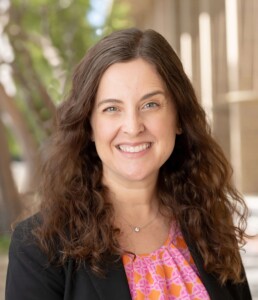 Sara E. Williams, PhD, is a clinical pediatric pain psychologist specializing in chronic pain within the field of in intensive interdisciplinary pain treatment (IIPT). She was part of PICH during her fellowship at Boston Children’s Hospital and is thrilled to remain connected now as a PICH faculty member. In her career as an attending psychologist, she founded the Functional Independence Restoration program for inpatient pediatric chronic pain rehabilitation at Cincinnati Children’s Hospital and worked there as the clinical director from 2013-2023. Now, she is the director of the Pediatric Pain Rehabilitation Program at Stanford University, where she is a Clinical Professor in the Department of Anesthesiology, Perioperative and Pain Medicine in the School of Medicine. Her research interests focus on psychosocial factors affecting children’s and parents’ experience of pediatric chronic pain conditions and creating innovative interventions. The most rewarding aspect of her career is working with trainees, especially mentoring aspiring pediatric pain psychologists to thrive in clinical and program development roles.
Sara E. Williams, PhD, is a clinical pediatric pain psychologist specializing in chronic pain within the field of in intensive interdisciplinary pain treatment (IIPT). She was part of PICH during her fellowship at Boston Children’s Hospital and is thrilled to remain connected now as a PICH faculty member. In her career as an attending psychologist, she founded the Functional Independence Restoration program for inpatient pediatric chronic pain rehabilitation at Cincinnati Children’s Hospital and worked there as the clinical director from 2013-2023. Now, she is the director of the Pediatric Pain Rehabilitation Program at Stanford University, where she is a Clinical Professor in the Department of Anesthesiology, Perioperative and Pain Medicine in the School of Medicine. Her research interests focus on psychosocial factors affecting children’s and parents’ experience of pediatric chronic pain conditions and creating innovative interventions. The most rewarding aspect of her career is working with trainees, especially mentoring aspiring pediatric pain psychologists to thrive in clinical and program development roles.
Sarah R. Martin, PhD, is an Assistant Professor and Clinical Psychologist in the University of California, Irvine (UCI) Department of Anesthesiology & Perioperative Care and a Principal Investigator within the UCI Center on Stress & Health. She received her PhD in Clinical Psychology from Georgia State University, completed her internship at Brown University, and a pediatric pain fellowship at the University of California Los Angeles. She is also a PICH and North American Pain School alumna. Dr. Martin’s research utilizes a biopsychosocial approach to identify behavioral, socio-cultural, and healthcare system factors that improve psychosocial outcomes and advance equitable pain care across acute and chronic pain contexts, including pediatric emergency care, chronic pain, and sickle cell disease. Her current research, funded through the National Institutes of Health, examines multilevel factors contributing to disparities in pain, clinical outcomes, and healthcare utilization surrounding pain management in the emergency department.
 Simon Beggs’ research focusses on the long-term consequences of pain in early life. Specifically, he is interested in the cellular and molecular processes that underlie the mechanisms that drive the normal development of pain-processing circuitry with the central nervous system, and how they are affected by exposure to injury or disease in early postnatal life. In the adult the nervous and immune systems communicate with each other and these interactions underpin the transition from acute to chronic pain states. In his research he looks at how these systems develop postnatally as they are exposed to external activity and how early life adverse events influence their subsequent development. There is a clear neurobiological basis for long-term effects of early life painful events that impact across the lifespan. Understanding the fundamental mechanisms will provide avenues for future therapeutic exploration.
Simon Beggs’ research focusses on the long-term consequences of pain in early life. Specifically, he is interested in the cellular and molecular processes that underlie the mechanisms that drive the normal development of pain-processing circuitry with the central nervous system, and how they are affected by exposure to injury or disease in early postnatal life. In the adult the nervous and immune systems communicate with each other and these interactions underpin the transition from acute to chronic pain states. In his research he looks at how these systems develop postnatally as they are exposed to external activity and how early life adverse events influence their subsequent development. There is a clear neurobiological basis for long-term effects of early life painful events that impact across the lifespan. Understanding the fundamental mechanisms will provide avenues for future therapeutic exploration.
 Dr. Susan Tupper is the Manager of Pain Strategy & Research with the Saskatchewan Health Authority in Saskatchewan, Canada. She is a licensed physical therapist with a PhD in Community Health and Epidemiology and a post-doctoral fellowship in Pediatrics. Susan was a trainee with Pain in Child Health. Susan holds Adjunct Professor appointments with the University of Saskatchewan College of Medicine departments of Pediatrics; Anesthesiology, Perioperative Medicine and Pain Management; and the School of Rehabilitation Sciences. She led the working group to develop a provincial Clinical Standard and Clinical Procedure for pain assessment and management and is a lead for the Chronic Pain Provincial Clinical Network for the Saskatchewan Health Authority. Susan was a working group member of the Health Standards Organization, National Standard of Canada on Pediatric Pain Management (CAN/HSO 13200:2023) and is a member of the Pain Canada National Advisory Committee and provincial/territorial subcommittee. Susan’s patient-engaged research examines clinical interactions about pain for people with chronic health conditions and education to challenge pain-related stigma. Susan was the founding Chair of the Board of Directors of the Saskatchewan Pain Society (SaskPain), a non-profit charity focused on supporting people living with pain in Saskatchewan.
Dr. Susan Tupper is the Manager of Pain Strategy & Research with the Saskatchewan Health Authority in Saskatchewan, Canada. She is a licensed physical therapist with a PhD in Community Health and Epidemiology and a post-doctoral fellowship in Pediatrics. Susan was a trainee with Pain in Child Health. Susan holds Adjunct Professor appointments with the University of Saskatchewan College of Medicine departments of Pediatrics; Anesthesiology, Perioperative Medicine and Pain Management; and the School of Rehabilitation Sciences. She led the working group to develop a provincial Clinical Standard and Clinical Procedure for pain assessment and management and is a lead for the Chronic Pain Provincial Clinical Network for the Saskatchewan Health Authority. Susan was a working group member of the Health Standards Organization, National Standard of Canada on Pediatric Pain Management (CAN/HSO 13200:2023) and is a member of the Pain Canada National Advisory Committee and provincial/territorial subcommittee. Susan’s patient-engaged research examines clinical interactions about pain for people with chronic health conditions and education to challenge pain-related stigma. Susan was the founding Chair of the Board of Directors of the Saskatchewan Pain Society (SaskPain), a non-profit charity focused on supporting people living with pain in Saskatchewan.
 Dr. Kashikar-Zuck is a clinical psychologist and Professor of Pediatrics in the Division of Behavioral Medicine and Clinical Psychology at Cincinnati Children’s Hospital Medical Center. She is the founding psychologist of the multidisciplinary pediatric pain clinic at Cincinnati Children’s. Her work in pediatric pain is internationally recognized and focuses on 1) clinical trials of cognitive-behavioral (CBT) and exercise-based treatments for chronic pain 2) longitudinal studies of youth with pediatric pain as they transition to adulthood and 3) validation of patient-reported outcome measures. Dr. Kashikar-Zuck has published over 100 scientific papers and received continuous NIH funding for her research for over 20 years. She has mentored a large number of undergraduate, graduate and post-doctoral students in pediatric pain who have gone on to successful clinical and research careers. She is an associate editor for the journal PAIN, and Associate Director of the Center for Understanding Pediatric Pain at Cincinnati Children’s.
Dr. Kashikar-Zuck is a clinical psychologist and Professor of Pediatrics in the Division of Behavioral Medicine and Clinical Psychology at Cincinnati Children’s Hospital Medical Center. She is the founding psychologist of the multidisciplinary pediatric pain clinic at Cincinnati Children’s. Her work in pediatric pain is internationally recognized and focuses on 1) clinical trials of cognitive-behavioral (CBT) and exercise-based treatments for chronic pain 2) longitudinal studies of youth with pediatric pain as they transition to adulthood and 3) validation of patient-reported outcome measures. Dr. Kashikar-Zuck has published over 100 scientific papers and received continuous NIH funding for her research for over 20 years. She has mentored a large number of undergraduate, graduate and post-doctoral students in pediatric pain who have gone on to successful clinical and research careers. She is an associate editor for the journal PAIN, and Associate Director of the Center for Understanding Pediatric Pain at Cincinnati Children’s.
 Dr Sylvie Le May is an active researcher at both CHU Ste-Justine’s Pediatric Research Centre and TransMedTech Institute in Montreal. She is also a Full professor at the University of Montreal. Her main research interests are related to procedural pain management in children, using innovative technologies, particularly in the emergency department, burns and orthopedic care units. In 2017, she received a Mentorship award from the Centre for Pediatric Pain (IWK, Dalhousie, NS) for the quality of her mentorship to graduate students working in pediatric pain. Also, in 2019, the University of Montreal granted her an award for excellence in supervision of graduate students. To date, she has supervised close to 40 graduate students who have moved on to successful careers. Her research profile is productive for her field with more than 100 articles published and over 200 presentations at national and international meetings.
Dr Sylvie Le May is an active researcher at both CHU Ste-Justine’s Pediatric Research Centre and TransMedTech Institute in Montreal. She is also a Full professor at the University of Montreal. Her main research interests are related to procedural pain management in children, using innovative technologies, particularly in the emergency department, burns and orthopedic care units. In 2017, she received a Mentorship award from the Centre for Pediatric Pain (IWK, Dalhousie, NS) for the quality of her mentorship to graduate students working in pediatric pain. Also, in 2019, the University of Montreal granted her an award for excellence in supervision of graduate students. To date, she has supervised close to 40 graduate students who have moved on to successful careers. Her research profile is productive for her field with more than 100 articles published and over 200 presentations at national and international meetings.
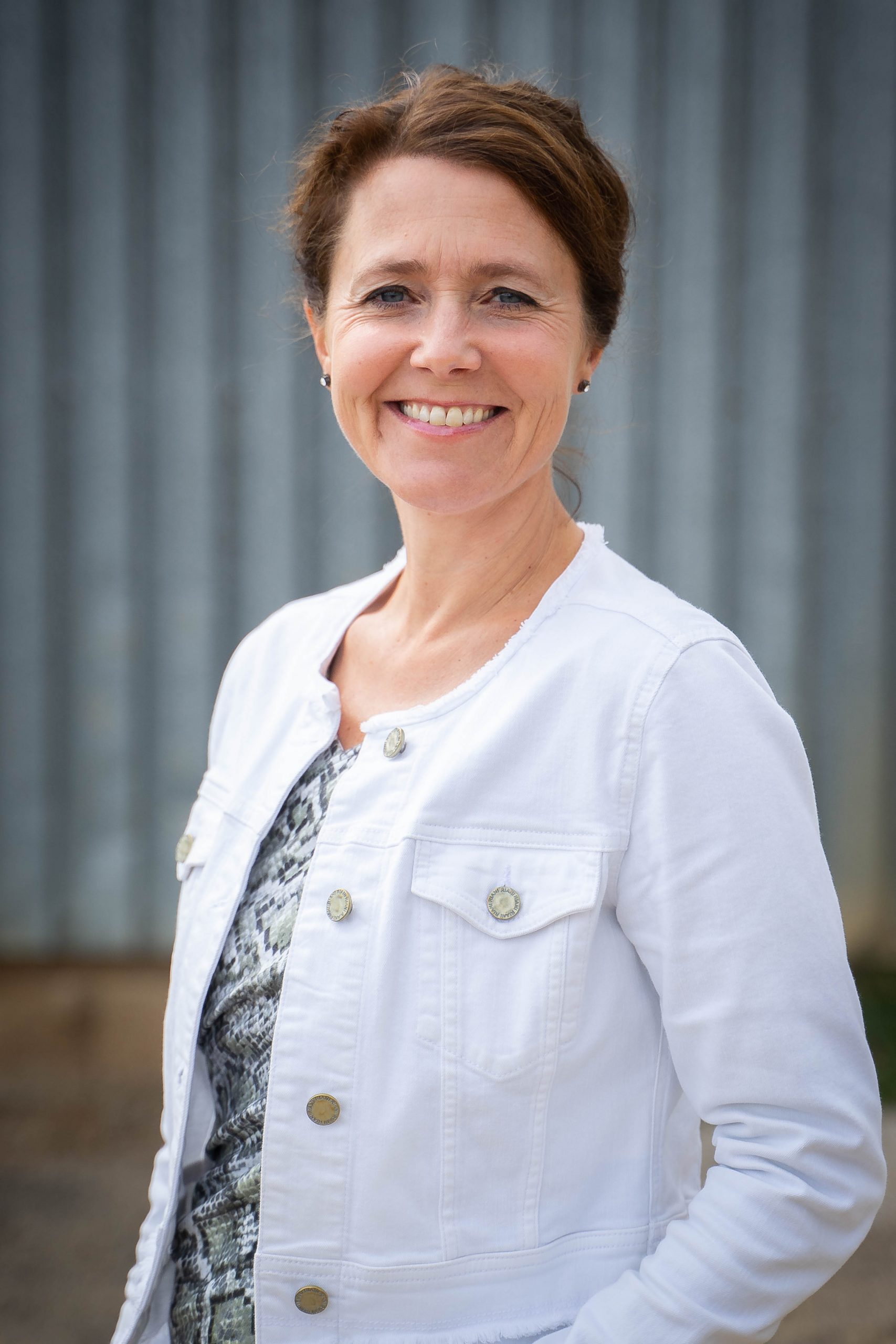 Tanja Hechler is full professor of Clinical Psychology and Psychotherapy for Children and Adolescents at the Department of Psychology, University of Trier, Germany. Her research focusses on the co-occurrence of mental health problems and chronic pain. Research areas include: i) interoception and emotional processes, ii) chronic pain, fear and anxiety, iii) lay theories and pain concepts. She is the head of the outpatient psychotherapy clinic for children and adolescents, and the postgraduate training in child and adolescent psychotherapy.
Tanja Hechler is full professor of Clinical Psychology and Psychotherapy for Children and Adolescents at the Department of Psychology, University of Trier, Germany. Her research focusses on the co-occurrence of mental health problems and chronic pain. Research areas include: i) interoception and emotional processes, ii) chronic pain, fear and anxiety, iii) lay theories and pain concepts. She is the head of the outpatient psychotherapy clinic for children and adolescents, and the postgraduate training in child and adolescent psychotherapy.
She obtained her PhD in 2000 at the University of Sydney, Australia, and the University of Trier. In 2013, she accomplished her postdoctoral qualification at the Justus-Liebig-University Gießen, and became a licensed psychotherapist for children and adolescents.
She has a wide range of cooperation, e.g. Prof. Dr. André Schulz, l`Université de Luxembourg, Prof. Dr. Christiane Pané-Farré, Philipps-University Marburg, Prof. Dr. Silvia Schneider, Ruhr-University Bochum, Prof. Dr. Melanie Noel, University of Calgary, Canada.
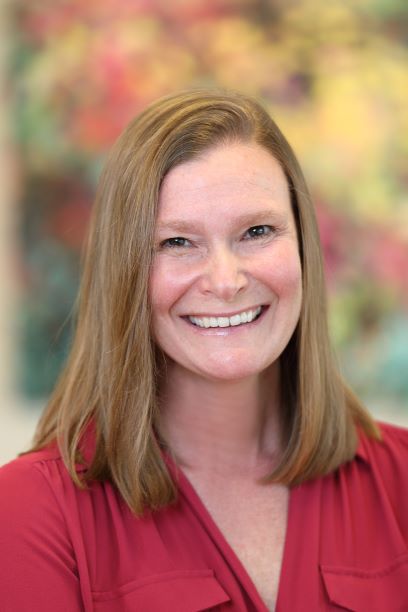 Dr. Tonya Palermo is a pediatric psychologist and Professor of Anesthesiology and Pain Medicine at University of Washington with adjunct appointments in Pediatrics and Psychiatry. She holds the Hughes M. and Katherine Blake Endowed Professorship in Health Psychology. Dr. Palermo serves as Associate Director of the Center for Child Health, Behavior and Development at Seattle Children’s Research Institute. She directs the Pediatric Pain & Sleep Innovations Lab that investigates behavioral, psychosocial and family factors that affect pain experiences, and innovative psychological treatments that can be delivered at low cost. Currently, Dr. Palermo serves as Associate Editor for PAIN, Editor-in-Chief for the Journal of Pediatric Psychology and as Chair, Scientific Program Committee for the IASP Pain in Childhood SIG 2022 meeting in Auckland. Dr. Palermo has developed and evaluated several internet and mobile applications to deliver cognitive-behavioral interventions for chronic pain and has published two books on cognitive-behavioral therapy.
Dr. Tonya Palermo is a pediatric psychologist and Professor of Anesthesiology and Pain Medicine at University of Washington with adjunct appointments in Pediatrics and Psychiatry. She holds the Hughes M. and Katherine Blake Endowed Professorship in Health Psychology. Dr. Palermo serves as Associate Director of the Center for Child Health, Behavior and Development at Seattle Children’s Research Institute. She directs the Pediatric Pain & Sleep Innovations Lab that investigates behavioral, psychosocial and family factors that affect pain experiences, and innovative psychological treatments that can be delivered at low cost. Currently, Dr. Palermo serves as Associate Editor for PAIN, Editor-in-Chief for the Journal of Pediatric Psychology and as Chair, Scientific Program Committee for the IASP Pain in Childhood SIG 2022 meeting in Auckland. Dr. Palermo has developed and evaluated several internet and mobile applications to deliver cognitive-behavioral interventions for chronic pain and has published two books on cognitive-behavioral therapy.
 Dr. Trang is an Associate Professor at the University of Calgary and scientist at the Hotchkiss Brain Institute and Alberta Children’s Hospital Research Institute. He obtained a PhD in pharmacology and toxicology at Queen’s University and completed a fellowship at SickKids Hospital. He and his team are unlocking the causes of chronic pain at the level of genes, cells, and circuits. They are working to advance discoveries into new, effective pain therapies. An area of focus is on understanding how opioids impact the nervous system and improving the safety of these medications. This research has been recognized by several national and international awards. Dr. Trang leads the Alberta Pain Research Network, and the Brain and Mental Health Spinal Cord, Nerve Injury, and Pain team at the University of Calgary.
Dr. Trang is an Associate Professor at the University of Calgary and scientist at the Hotchkiss Brain Institute and Alberta Children’s Hospital Research Institute. He obtained a PhD in pharmacology and toxicology at Queen’s University and completed a fellowship at SickKids Hospital. He and his team are unlocking the causes of chronic pain at the level of genes, cells, and circuits. They are working to advance discoveries into new, effective pain therapies. An area of focus is on understanding how opioids impact the nervous system and improving the safety of these medications. This research has been recognized by several national and international awards. Dr. Trang leads the Alberta Pain Research Network, and the Brain and Mental Health Spinal Cord, Nerve Injury, and Pain team at the University of Calgary.
 Dr. Zempsky is the Francine L. and Robert B. Goldfarb-William T. Zempsky, MD Endowed Chair for Pain and Palliative Medicine at Connecticut Children’s Medical Center and the Associate Chair for Research and Professor of Pediatrics at the University of Connecticut School of Medicine. Dr. Zempsky is an international expert on the pediatric pain management. He has published numerous research papers and holds several ongoing NIH grants regarding pain in youth with sickle cell disease, obesity, fibromyalgia, neurofibromatosis, postoperative pain and pain-related stigma. Dr. Zempsky has received major awards including the prestigious Donaghue Investigator Award, as well as the Mayday Pain and Society Fellowship to enhance his abilities in pain advocacy. Dr. Zempsky is a co-editor of the Oxford Textbook of Pediatric Pain. His current research directions focus on pain self-management interventions and understanding long-haul syndrome in youth He is passionate about mentoring trainees and junior faculty.
Dr. Zempsky is the Francine L. and Robert B. Goldfarb-William T. Zempsky, MD Endowed Chair for Pain and Palliative Medicine at Connecticut Children’s Medical Center and the Associate Chair for Research and Professor of Pediatrics at the University of Connecticut School of Medicine. Dr. Zempsky is an international expert on the pediatric pain management. He has published numerous research papers and holds several ongoing NIH grants regarding pain in youth with sickle cell disease, obesity, fibromyalgia, neurofibromatosis, postoperative pain and pain-related stigma. Dr. Zempsky has received major awards including the prestigious Donaghue Investigator Award, as well as the Mayday Pain and Society Fellowship to enhance his abilities in pain advocacy. Dr. Zempsky is a co-editor of the Oxford Textbook of Pediatric Pain. His current research directions focus on pain self-management interventions and understanding long-haul syndrome in youth He is passionate about mentoring trainees and junior faculty.
- Krista Baerg
- Ran Goldman
- Lorimer Moseley
- Helen Slater
- Catherine E Ferland
- Michael Sangster
 Dr. Perri Tutelman is a Clinical Psychologist and Assistant Professor in the Department of Psychology at the University of Calgary where she holds the Chair in Transdisciplinary Digital Mental Health. She obtained her PhD in Clinical Psychology from Dalhousie University (Halifax, Nova Scotia, Canada) in 2022 including a predoctoral residency in Pediatric & Child Clinical Psychology at the Alberta Children’s Hospital (Calgary, Alberta, Canada). Subsequently, Dr. Tutelman completed a clinical and research fellowship in adolescent and young adult psychosocial oncology at the University of Calgary and Cancer Care Alberta.
Dr. Perri Tutelman is a Clinical Psychologist and Assistant Professor in the Department of Psychology at the University of Calgary where she holds the Chair in Transdisciplinary Digital Mental Health. She obtained her PhD in Clinical Psychology from Dalhousie University (Halifax, Nova Scotia, Canada) in 2022 including a predoctoral residency in Pediatric & Child Clinical Psychology at the Alberta Children’s Hospital (Calgary, Alberta, Canada). Subsequently, Dr. Tutelman completed a clinical and research fellowship in adolescent and young adult psychosocial oncology at the University of Calgary and Cancer Care Alberta.
Currently, Dr. Tutelman’s research is centered at the intersection of psychosocial oncology, pain, and digital mental health and is focused on developing novel patient-oriented interventions to support the wellbeing of children, adolescents, and young adults diagnosed with cancer. She works closely with patient partners to co-design research that addresses what matters most to patients and their families.
Alumni
- Patrick McGrath
- A.J. Valkenburg
- Liisa Holsti
- Marie-Claude Gregoire
- Susie Lord
- Eva Cignacco
- Celeste Johnston
- Allen Finley
- Carl von Baeyer
- Ruth Grunau

